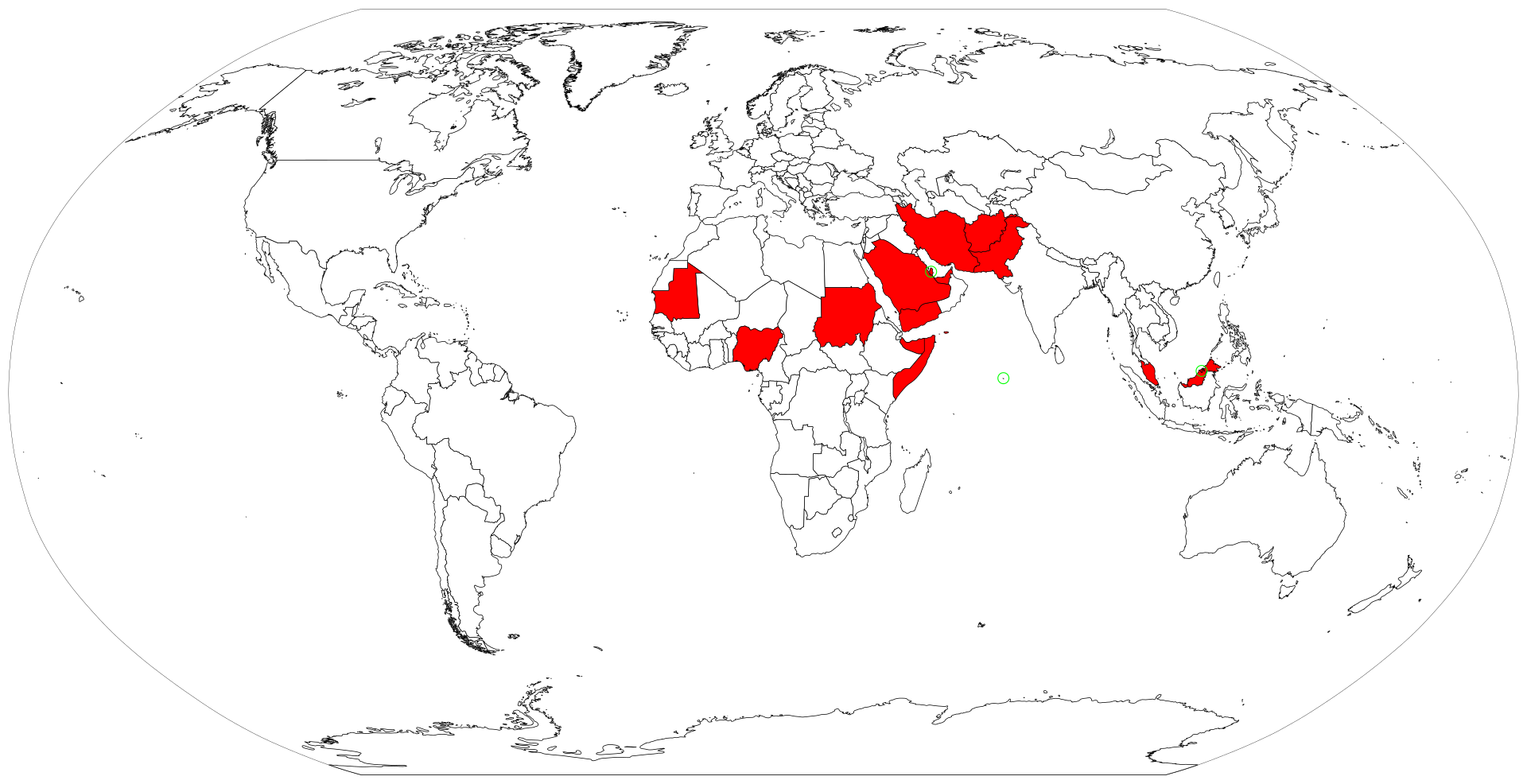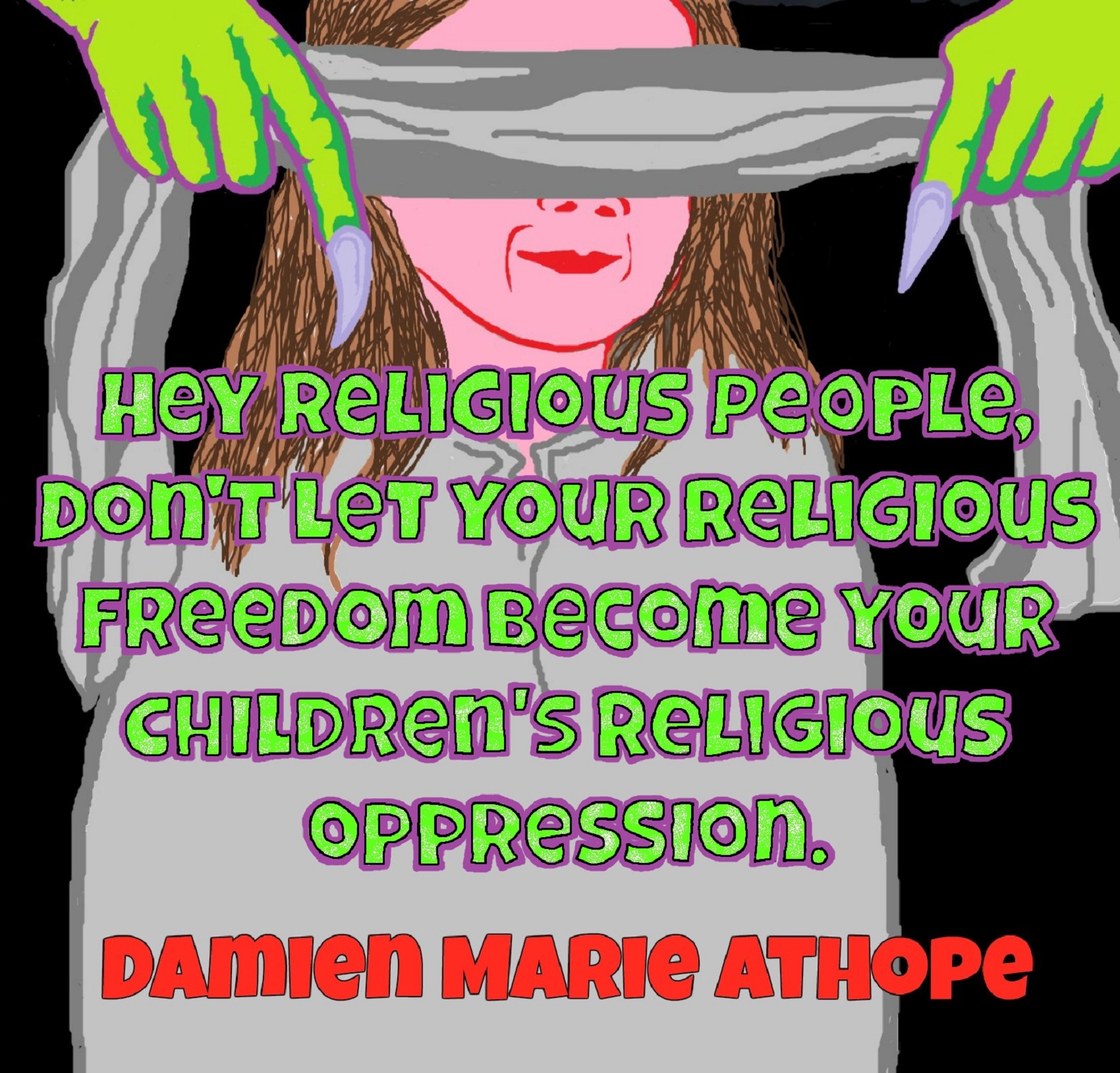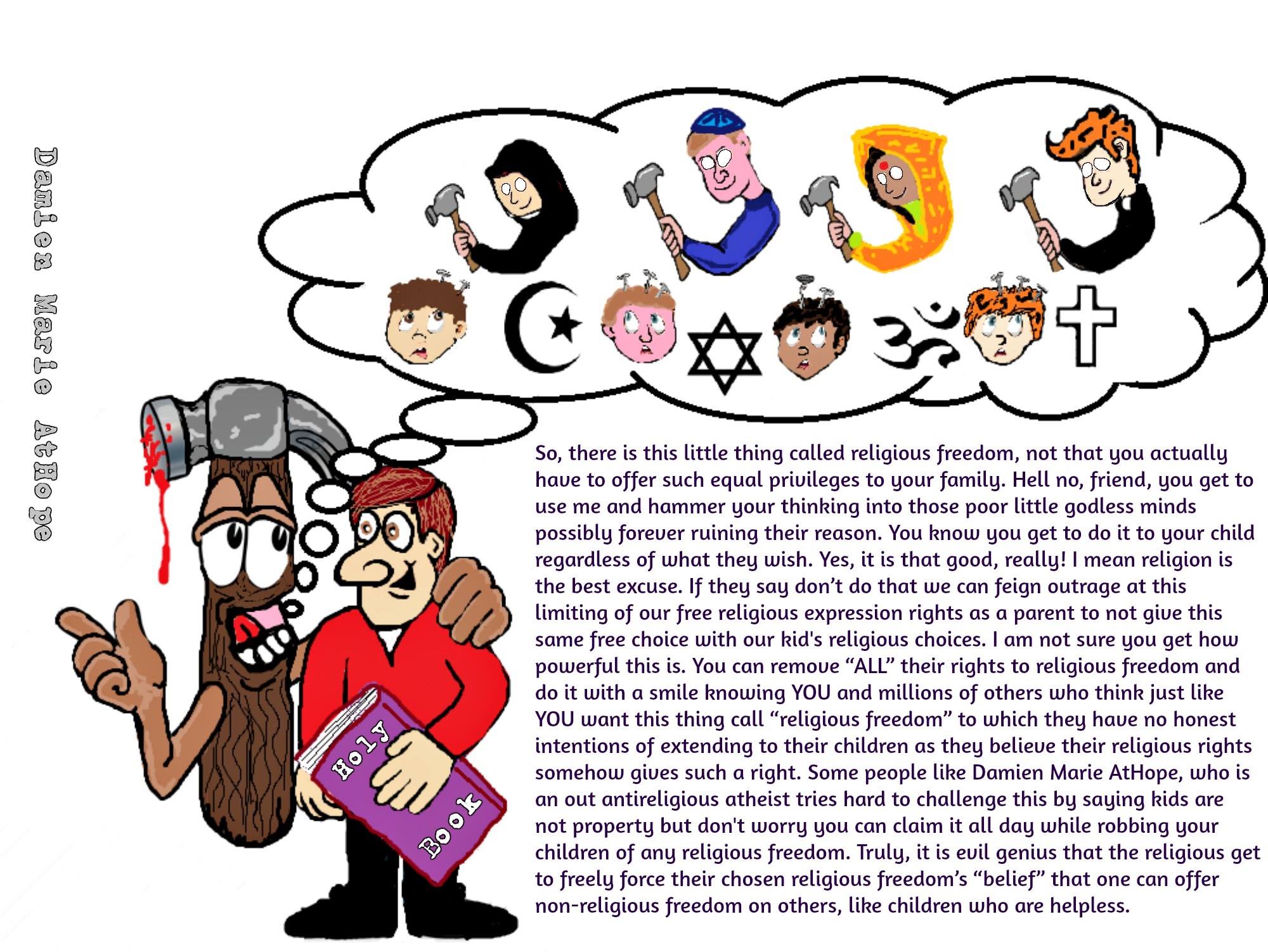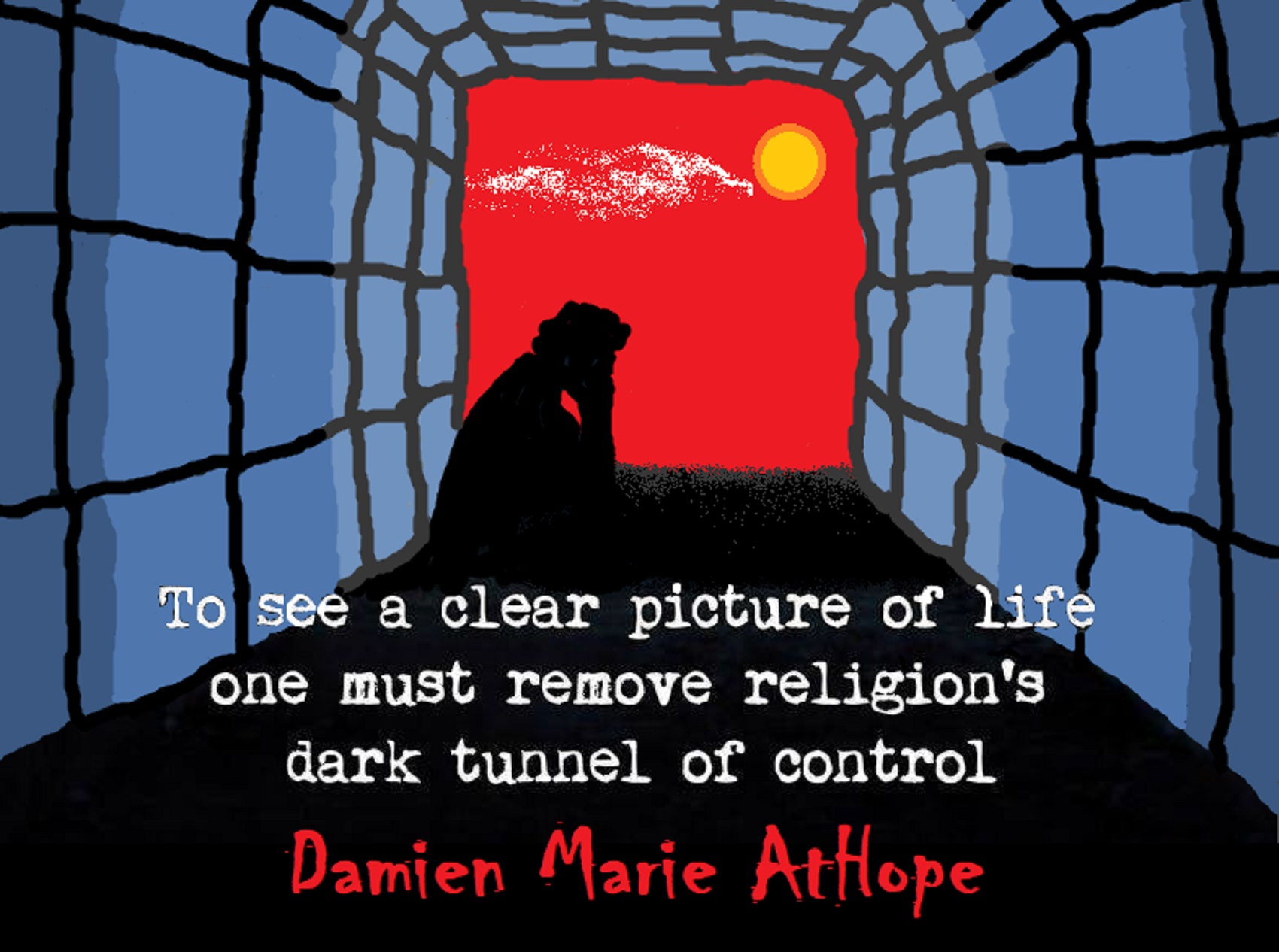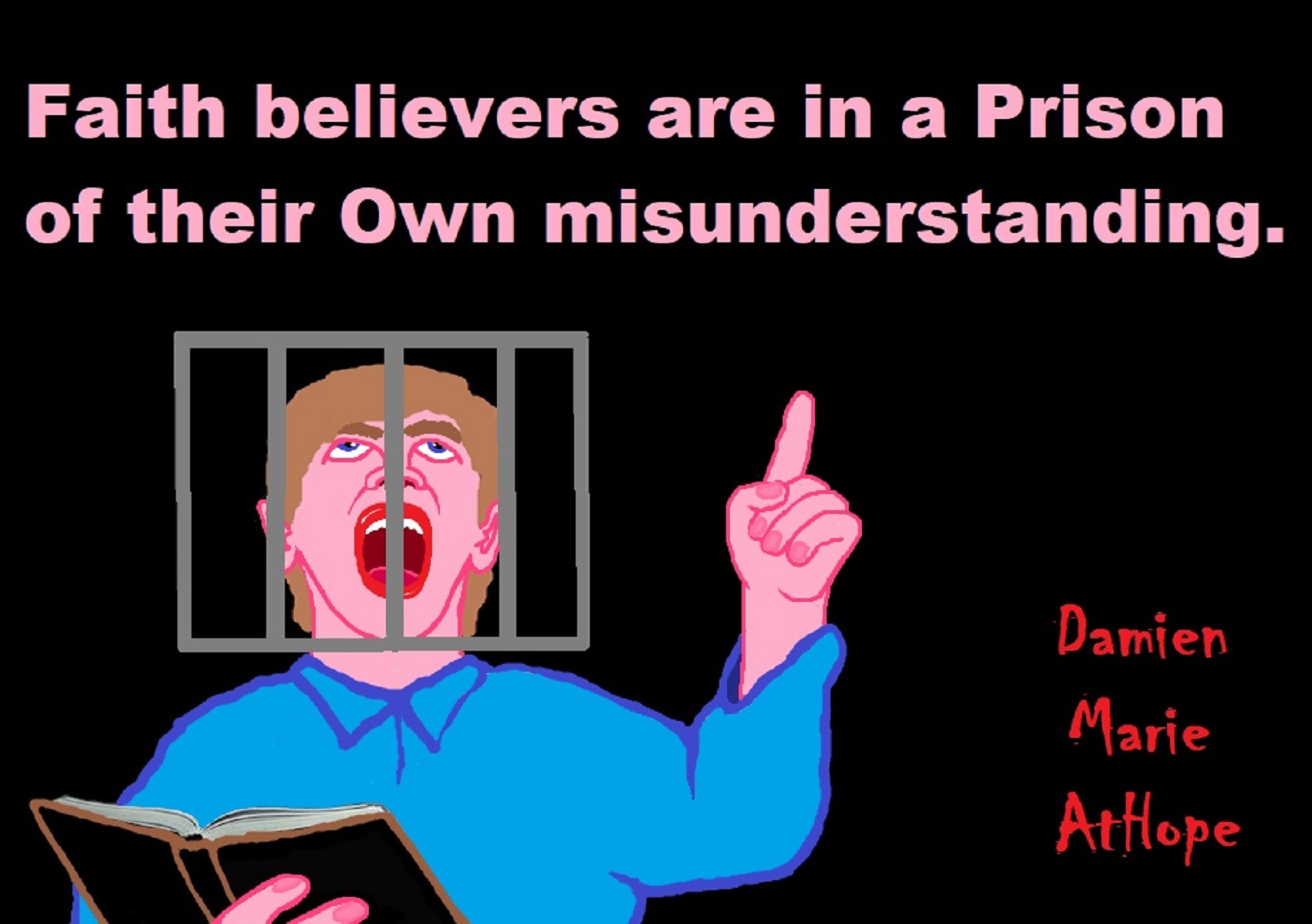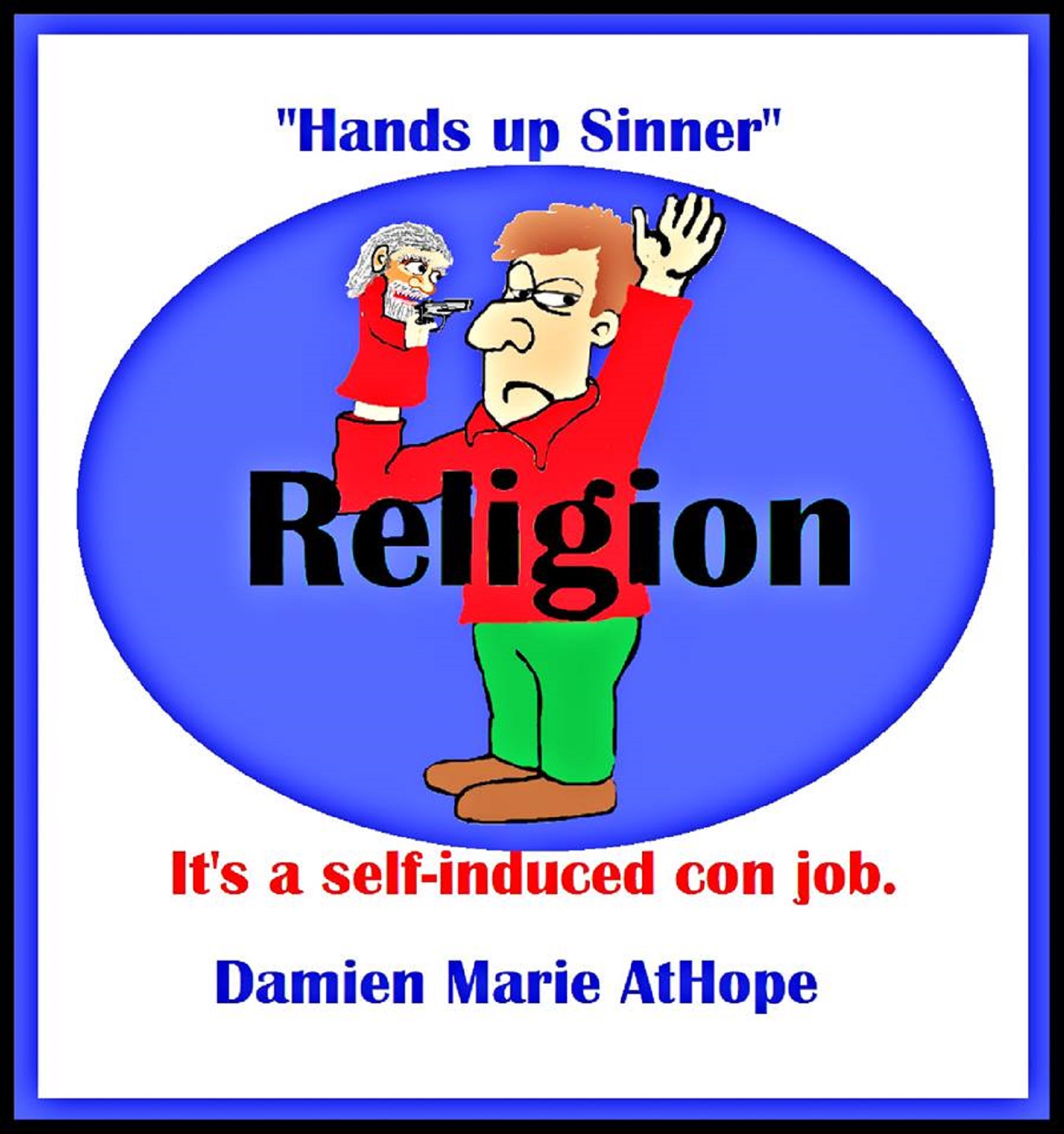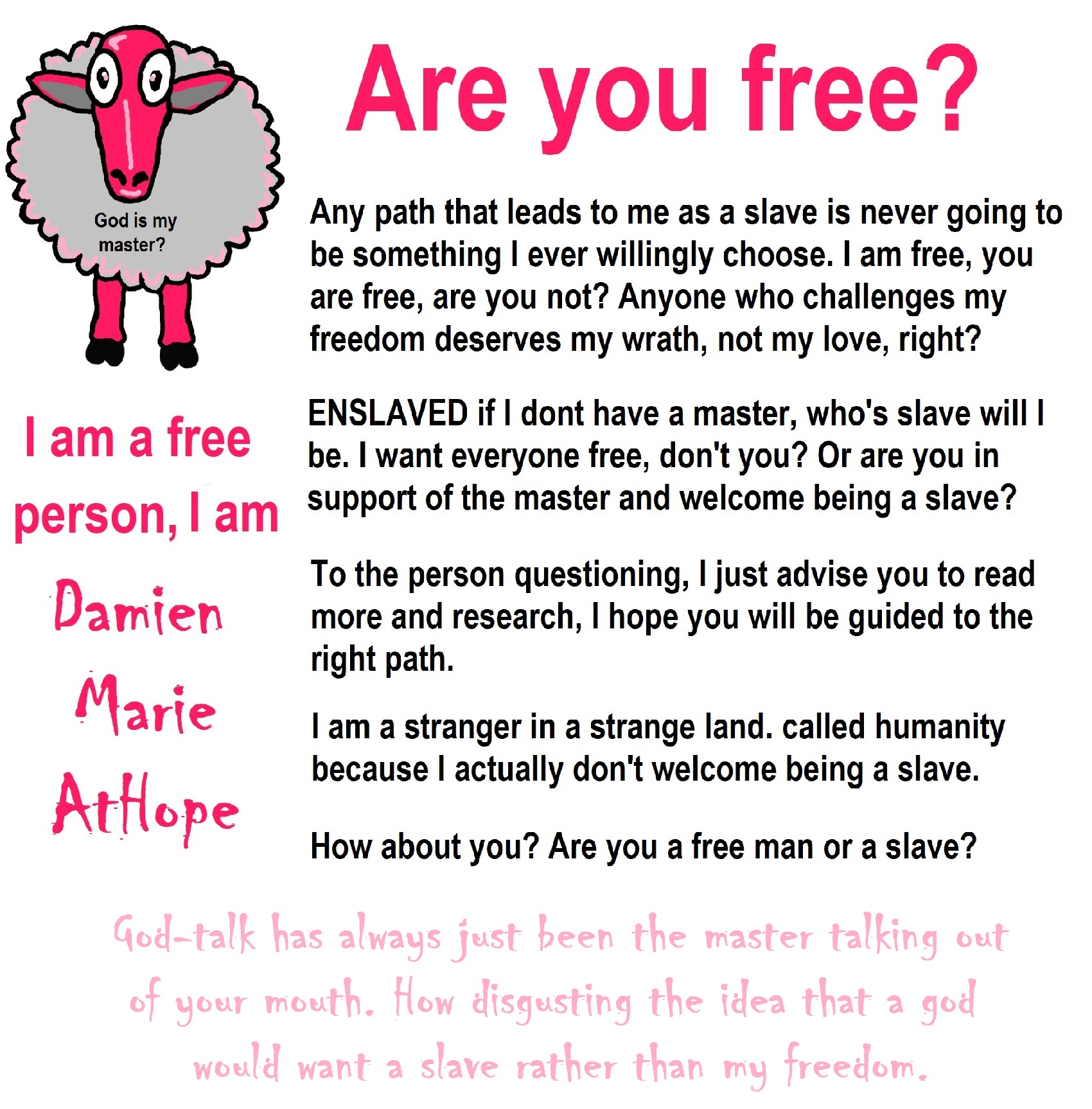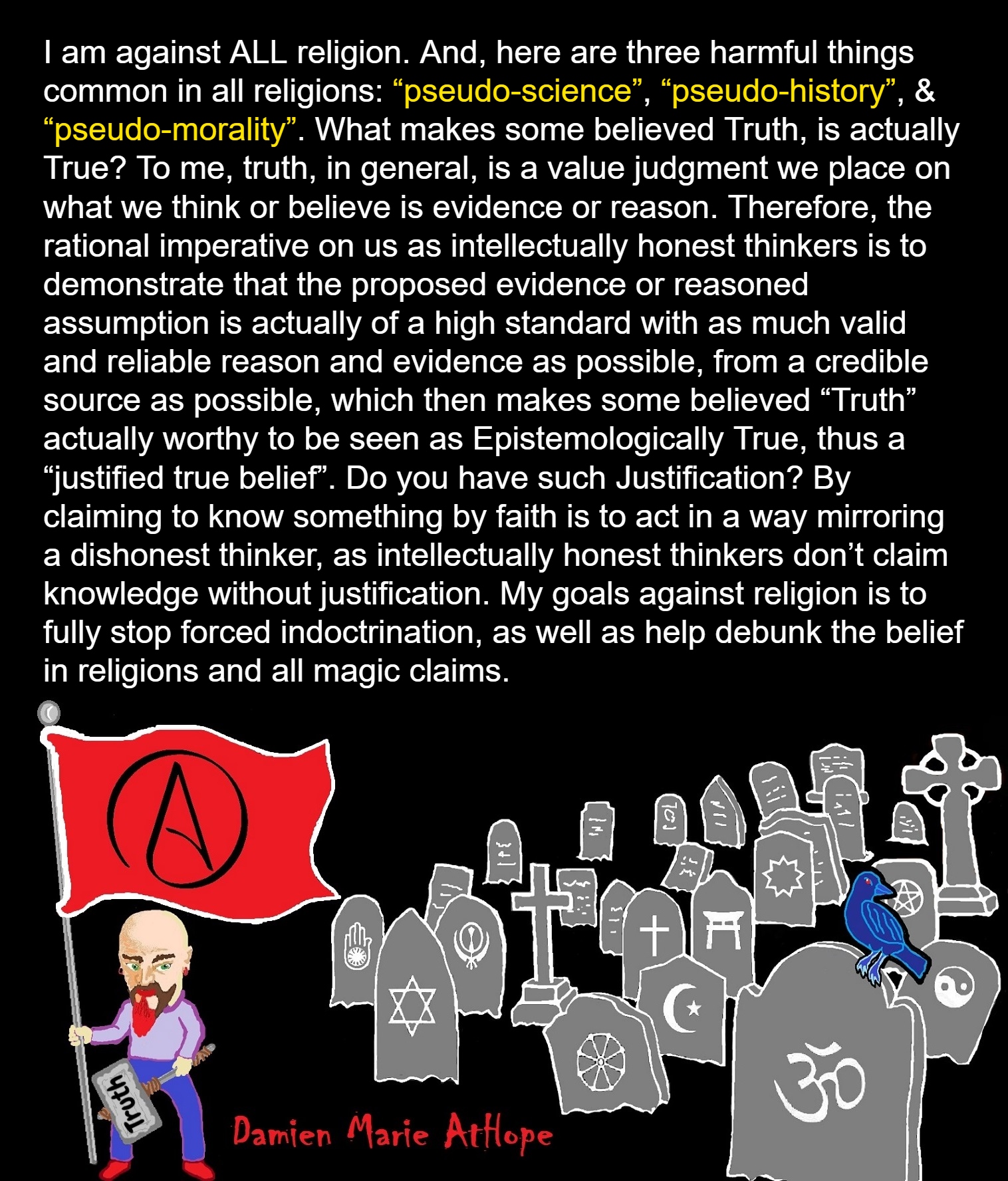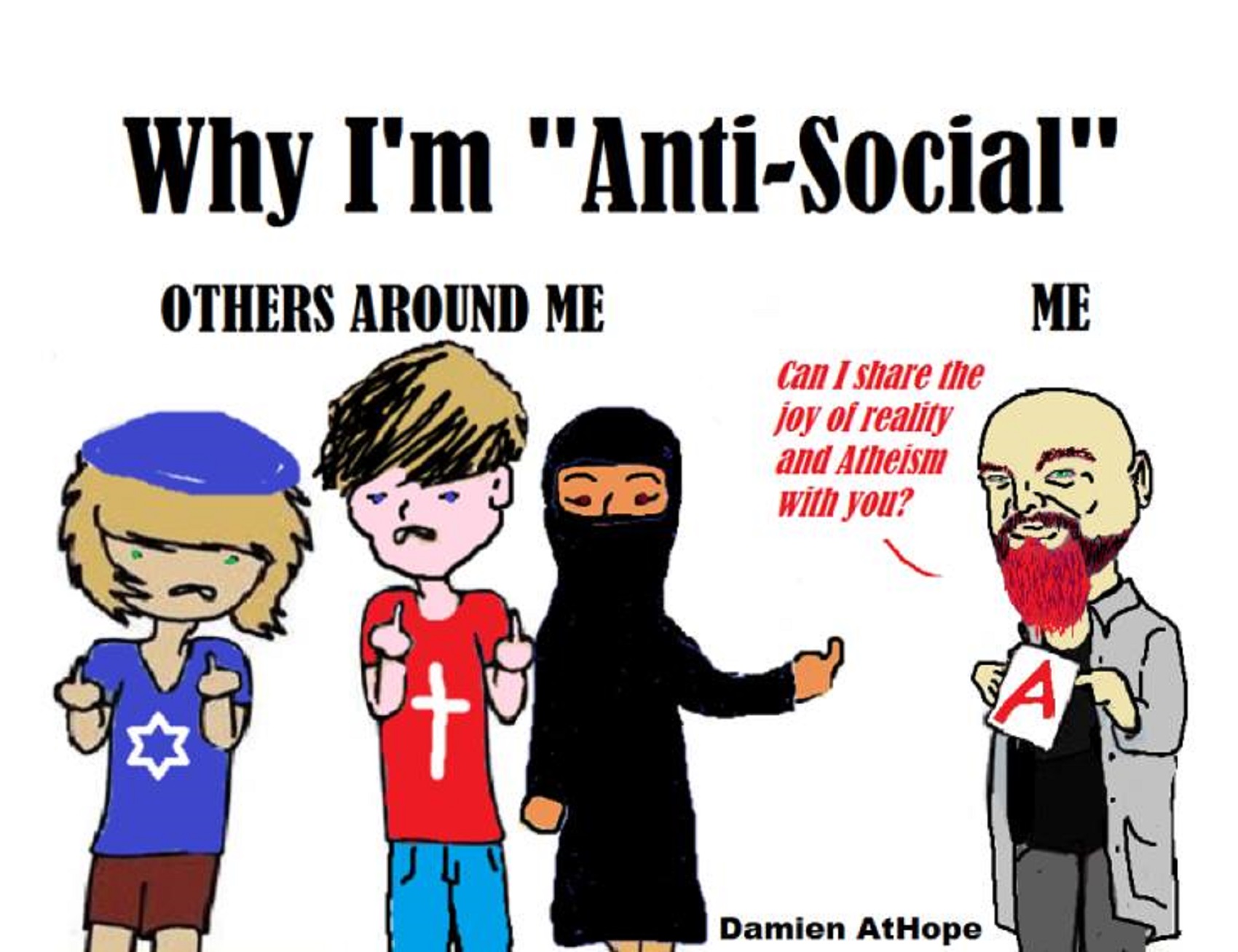
Atheophobia
Sometimes discrimination against atheists is called atheophobia, atheistophobia, anti-atheist discrimination, or anti-atheist sentiment.
Atheophobia is a term used to describe the fear, distrust, or hatred of atheists or atheism. But most often it is exhibited in the belief that one being an atheist should be consider as them being morally inferior or incapable of being or having morality (ie. belief an atheist can’t be a good person). This and other atheophobic bigotry or discrimination can lead to a kind invisibility for many atheists, who find it is best to keep their nonbelief hidden or say any other label but atheist to not be treated differently, most especially with religious family but to a larger extent with society at large. Many holy books take a strong and negative atheophobic stance, some even talking of death. Ref
Challenger. “Don’t dignify religious bigotry by giving it a name that does not explicitly refer to religious bigotry. I think is better defined as “Fear that there might not be a god” This better explains the reaction of the religion to those who do not agree with them. It is founded upon fear that they are wrong.”
My response, So, you think that is a logical line of reasoning that we should not give bigotry a name as you hold (it would seem) that to do so dignifies the bigotry to you? Is so, how is that different from any form of bigotry? So, should we as you claim, state that we don’t wish to dignify bigotry, thus, to you we should not give them a name? Like you don’t think we should have a word like racism? Sexism? Homophobia? Xenophobia? Etc.?
Challenger. “Bigotry already has a name – BIGOTRY. To give it another term to hide behind risks just that – being hidden behind.”
My response, And the different terms for types of bigotry you are also against and can you will explain how this s a rational belief? so, you are avoiding your dislike or your support for the terms like racism? Sexism? Homophobia? Xenophobia? Etc.?
Challenger. “If you need to ask, you have not read anything I have written, anywhere. Both are forms of bigotry, and I think I have made my position of bigotry very clear. Why are you raising this straw man when we are discussing the pros and cons of -phobias, not -isms? Are you against arachnophobia? That makes as much sense as your question. No, Damien, it is ot illogical. That you reject it is no more logical and is an error in reasoning. Why? Because your claim to be it being logical is unsupported as it is, like mine, mere;y an opinion. Disagreeing with you is not a logical error, though you seem. Unusually for you, to think that in this instance it is. Of course, had you supported your original claim about the etymology and meaning of atheophobia AND produced evidence to demonstrate that my suggestions were without foundation rather than merely repeat your opinion, then you would not, in this instance, be hoist with your own petard – unsupported assertion – and have no need to fall back on an error of logic which you are projecting upon me when it is you who is guilty of it. You are normally better than that.”
My response, Here are some facts on STUDIES OF BIGOTRY:
“Importantly, some of the earliest social science research addressing the problem of bigotry focused on patterns of interaction and violence perpetrated by whites against African Americans in the United States. Until the late 1950s, blatant racism and physical violence directed at African Americans was normative and well entrenched within the social fabric of American society. Whereas some blamed white fears about miscegenation (i.e., interracial sexual relations) for the collective violence directed at the newly freed class of citizens, others generally attributed the problem to the expanding rights of African Americans. Contemporary research and theory on bigotry can be conceptualized along a continuum. At one end are those theories that locate the causes of bigotry outside of the individual at the societal level (i.e., the macro level of analysis). These types of theories are largely context dependent. At the other end of this conceptual continuum are explanations for bigotry that attribute causality to internal factors such as deficiencies in the individual’s personality, limitations in information-processing capacities, or physiological and biological mechanisms. Many of the efforts toward understanding the problem of bigotry have involved individualistic accounts of prejudice focusing on such cognitive processes as stereotyping, categorization, and learning. In the U.S. tradition of social psychology, researchers have tended to focus on the individual’s thought processes and experiences while overlooking or minimizing ways that the wider social context can instigate bigotry (Bar-Tal and Teichman 2005). In contrast, researchers outside of the United States, as well as many of those within the discipline of sociology (e.g., Feagin and Feagin 1986), have focused upon the institutional and structural factors that can be both causes and effects of bigotry. According to this approach, current institutional policies and organizational structures continue to discriminate because they were established in the past by those most privileged by discriminatory policies. Because of these policies, people who were targets of prejudice in the past continue to experience discrimination long after explicit expressions of bigotry and acknowledgement of prejudice have ceased to occur. Although interest in studying bigotry has varied over the years, a renewed interest in the topic is evident among researchers addressing issues related to cyberhate, terrorism, and religious and nationalistic fanaticism. In the case of cyberhate, the speed of the Internet and its widespread accessibility make the spread of bigotry almost instantaneous and increasingly available to vulnerable populations (Craig-Henderson 2006). As for the relationship between bigotry and nationalism, there are a host of researchers studying the Arab-Israeli conflict in the Middle East (e.g., Bar-Tal and Teichman 2005). That particular conflict has roots in the Zionist occupation of the country of Israel, formerly known as Palestine. Because of the historical realities that have created the state of Israel, today’s Arabs and Jews in that region have very distinct group identities that have given rise to their intergroup conflict. Social science researchers who study this kind of group conflict have demonstrated that the strength of identification with one’s in-group is associated with one’s expressed bigotry toward the out-group. In many situations, the more strongly one identifies with an in-group, the more bigoted one is against members of the out-group. Bigotry can be minimal and manifested in avoidance or social exclusion of the out-group, or it can be severe and deadly. In 1998 James Byrd Jr., an African American man in Jasper, Texas, was murdered by white supremacists who dragged him to death behind their pickup truck after offering him a ride home. As members of a white supremacist group, Byrd’s murderers were extreme in their bigotry. As a black man, Byrd was perceived by his murderers to be a member of a despised out-group. Similarly, brutal attacks have targeted sexual minorities. In 1998 the murder of the college student Matthew Shepard near Laramie, Wyoming, was attributed to anti-gay bigotry. Most public opinion polls reveal continuing evidence of this form of bigotry (Herek 2000). Shepard’s bigoted murderers were highly prejudiced toward gay people. Other examples of well-known bigots include David Duke, the former leader of the Knights of the Ku Klux Klan; Nazi chancellor of Germany Adolph Hitler (1889-1945); and French politician Jean-Marie Le Pen.” Ref
My response, So, your claim is not mentioned in the STUDIES OF BIGOTRY, how odd right? So, prove it or I will assume your claim unsupported as I do now.
Challenger. “When, Damien, was “Disagreement with Damien’s Unsupported Assertion” become a logical error? Your opinions are not evidence. Leave that method to the believers.”
My response, So, no support for the claim, “that we should not give bigotry a name as you hold (it would seem) that to do so dignifies the bigotry to you, right? You sir, have a burden of proof or I can stand term your claim is unsupported.
Challenger. “I gavw an opinion, which you called a logical error on the sole grounds that it disagreed with yours. Yours was the origibal claim. Your otininal claim was unsupported anf merely a neologism. y disagreement was not a claim, it was an opinion and you seem to have developed n aversion to people disgreeing with you and resort to ad hominem responses by clling opinions other than yours “logical errors”, despite no ;ogical error having been committed. You aredeveloping double standards. I di not make a claim. I disagreed with your claim. You clearly do not undersdttnd “Burden of Proof”, any more.
My response, You gave a logically inconsistent claim that you seem to not feel you can support with facts, so please provide supporting evidence for your claim? “burden of proof: is the obligation to prove one’s assertion”
Challenger. “Damien, I.DID.NOT.MAKE.AN.ASSERTION! YOU did, and you did so without any support. I merely pointed out some pitfalls in your unsupported assertion and you got upset.”
My response, Your, claim “Don’t dignify religious bigotry by giving it a name that does not explicitly refer to religious bigotry.”
Challenger. “WHERE IS THE CLAIM? It is an opinion that I think it is wrong to dignify religious bigotry by calling it something else. My opinion is not an an unsupported assertion, nor foes its failure to agree with your wholly unsupported, original assertion, make it a logical error. Why the hissy fit?”
My response, Your point of, “Don’t dignify” (this is claiming that something is or can happen an assertion/claim). “
Challenger. “As “don’t dignify” is merely an English form of an imperative verb, it is neither logically nor linguistically possible that it is a claim. As it is not a claim, it cannot suffer from being unsupported, nor is it in need ot proof. It was, as has ben gently explained to you, an opinion, trying to point out, in a civil manner, the possible pitfalls of the neologism. Because it is not a claim, your ad hominem response of accusing me of logical error, based solely upon your dislake of a non-sycophantic reaction to your post, displays a serius failure of understanding the nature or logic. Please do not merely cut-and-paste a response as it is important that you demonstrate that you understand the difference between an opinion and a claim. Claiming that something WILL happen is a claim. Oferring the opinion that something MIGHT happen is an ppinion.”
My response, Ok, then help me understand your thinking better now, so now after pointing out that “claim you made” that you now say “it” doesn’t mean what you said it is only a merely an English form of an imperative verb? So, you do believe in the necessity for different terms like racism or not?
Challenger. “What I said was that it might be worthwhile considering the possible pitfalls of applying a neologism to something which already has a name. Religious bigotry does not, imnsho, need another name as it is already well covered by the concepts of religious bigotry and religious privilege. The connotations of a “phobia” are such that the one afflicted with it is deserving of special attention and treatment and compassion. Whilst you and I, and other thinking people might not fall prey to this, the religious might find it useful to justify their bigotry by thinking of themselves as the victims of a phobia. The victim of a phobia is, in psychological terms, the one who is afflicted with the phobia and who should receive treatment to be relieved of it. For reasons of the correct use of the term “phobia”, which most people have forgotten, my comment was a polite invitation to consider the possible pitfalls. Please, Damien, not the “-ism” red herring, again. The other aspect of a “phobia” is that is is too often seen as a reaction to something which society considers to be of questionable vale – spiders, loneliness, etc – and to loosely bandy the suffix “-phobia” about, with little forethought could result in the opposite of the intended effect, such that Atheophobia results in Atheists becoming even more marginalized and hated by society. My suggestions are not knee-jerk, reactionary responses, but considered opinions, arrived at using techniques taught to me both by lawyers (my father’s original profession) and scientists (my revered lecturers at university). They were never meant to provoke anger, on;y thought and comment.”
My response, What do you mean by “-ism” red herring?”
Challenger. “Damien. Goofnight & Goodbye. It is not possible to have in intelligent conversation with you as you seem constitutionally, linguistically and intellectually incapable of distinguishing between a claim and an opinion. These deficiencies of yours do go some way to explaining why you consider an opinion which dies not align with yours to be a logicl error.”
My response, So, you are saying you only have a personal “”opinion”” not something you hold as true so your opinion,
“Don’t dignify religious bigotry by giving it a name that does not explicitly refer to religious bigotry.”
My response, So, that is only a personal, not a truth statement, to you it’s just something you believe and is necessarily not open to proof or disproof.?
Let’s begin with opinion.
“An opinion is a self-report of feelings or personal judgment, e.g., I’m thirsty. Opinions often contain clue words pointing to oneself, e.g., I think, I believe, I feel, in my opinion. Sometimes, however, a self-report is smuggled into a statement with an adjective indicating an attitude or emotion. For example, if I say, “This is a nasty day,” I’m not really describing the objective day in the real world, but rather expressing my emotion that the day is unpleasant, which is equivalent to saying, “I’m not pleased about the day,” a self-report. There is no need to argue against opinions when they are recognized as self-reports rather than as claims about the real world. It would be ridiculous to argue, “You are wrong–you really are not thirsty,” or “In fact, the day actually is pleasant.” We accept self-reports of emotion or attitude as unassailable because we have no basis for questioning them. For this reason, opinions (self-reports) don’t count for much when someone is trying to persuade you. You can always answer, “I have a different opinion.” Accordingly, it is correct that we are all entitled to our opinions because ordinarily, no one else has sufficient data to question our self-reports. Moreover, since opinions are not claims about the real world, they are usually inconsequential.” http://www.auburn.edu/academic/education/reading_genie/Fact-opinion.html
My response, Am I wrong that you feel no need to give evidence to “Support” your claims which to me you wrongly call just options; when it sure seems, you assure you self-titled options as truth-statements? Unless, I miss understand and you were not offering your statements as truth? Or is it another non-truth statement.
So, this statement you started all this with, “Don’t dignify religious bigotry by giving it a name that does not explicitly refer to religious bigotry” is not making any truth statement (a claim) but a personal option that you don’t assort as a truth but to you? “Don’t dignify religious bigotry by giving it a name that does not explicitly refer to religious bigotry.”
You said, “Claiming that something WILL happen is a claim. Oferring the opinion that something MIGHT happen is an opinion”, is just just another claim you choose to not support; as it is nothing more than a personal opinion to you not you making a truth statement?
“Let’s look at the facts.”
What an Opinion is:
—Twinkies are delicious.
—I like dance music.
—I think Virginia Woolf is better than James Joyce.
—The governor is a bad man.
What a Claim Is:
—A claim is the main argument of an essay. It is probably the single most important part of an academic paper. The complexity, effectiveness, and quality of the entire paper hinges on the claim. If your claim is boring or obvious, the rest of the paper probably will be too.
—A claim defines your paper’s goals, direction, scope, and exigence and is supported by evidence, quotations, argumentation, expert opinion, statistics, and telling details.
—A claim must be argumentative. When you make a claim, you are arguing for a certain interpretation or understanding of your subject.
—A good claim is specific. It makes a focused argument (MTV‟s popularity is waning because it no longer plays music videos) rather than a general one (MTV sucks).
So, is there “Atheophobia”, well lets look at discrimination against atheists, well such fear and hate is well documented both at present and historically, includes the persecution of those identifying themselves or labeled by others as atheists, as well as the discrimination against them. Discrimination against atheists may also refer to and comprise the negative attitudes towards, prejudice, hostility, hatred, fear, and/or intolerance towards atheists and/or atheism. As atheism can be defined in various ways, those discriminated against or persecuted on the grounds of being atheists might not have been considered as such in a different time or place. As of 2015, 19 countries punish their citizens for apostasy, and in 13 of those countries it is punishable by death. In some Islamic countries, atheists face persecution and severe penalties such as the withdrawal of legal status or, in the case of apostasy, capital punishment. Article 18 of the Universal Declaration of Human Rights is designed to protect the right to freedom of thought, conscience, and religion. In 1993, the UN’s human rights committee declared that article 18 of the International Covenant on Civil and Political Rights “protects theistic, non-theistic and atheistic beliefs, as well as the right not to profess any religion or belief.” Ref
1. The right to freedom of thought, conscience and religion (which includes the freedom to hold beliefs) in article 18.1 is far-reaching and profound; it encompasses freedom of thought on all matters, personal conviction and the commitment to religion or belief, whether manifested individually or in community with others. The Committee draws the attention of States parties to the fact that the freedom of thought and the freedom of conscience are protected equally with the freedom of religion and belief. The fundamental character of these freedoms is also reflected in the fact that this provision cannot be derogated from, even in time of public emergency, as stated in article 4.2 of the Covenant.
2. Article 18 protects theistic, non-theistic and atheistic beliefs, as well as the right not to profess any religion or belief. The terms “belief” and “religion” are to be broadly construed. Article 18 is not limited in its application to traditional religions or to religions and beliefs with institutional characteristics or practices analogous to those of traditional religions. The Committee therefore views with concern any tendency to discriminate against any religion or belief for any reason, including the fact that they are newly established, or represent religious minorities that may be the subject of hostility on the part of a predominant religious community.
3. Article 18 distinguishes the freedom of thought, conscience, religion or belief from the freedom to manifest religion or belief. It does not permit any limitations whatsoever on the freedom of thought and conscience or on the freedom to have or adopt a religion or belief of one’s choice. These freedoms are protected unconditionally, as is the right of everyone to hold opinions without interference in article 19.1. In accordance with articles 18.2 and 17, no one can be compelled to reveal his thoughts or adherence to a religion or belief.
4. The freedom to manifest religion or belief may be exercised “either individually or in community with others and in public or private”. The freedom to manifest religion or belief in worship, observance, practice and teaching encompasses a broad range of acts. The concept of worship extends to ritual and ceremonial acts giving direct expression to belief, as well as various practices integral to such acts, including the building of places of worship, the use of ritual formulae and objects, the display of symbols, and the observance of holidays and days of rest. The observance and practice of religion or belief may include not only ceremonial acts but also such customs as the observance of dietary regulations, the wearing of distinctive clothing or headcoverings, participation in rituals associated with certain stages of life, and the use of a particular language customarily spoken by a group. In addition, the practice and teaching of religion or belief includes acts integral to the conduct by religious groups of their basic affairs, such as the freedom to choose their religious leaders, priests and teachers, the freedom to establish seminaries or religious schools and the freedom to prepare and distribute religious texts or publications.
5. The Committee observes that the freedom to “have or to adopt” a religion or belief necessarily entails the freedom to choose a religion or belief, including the right to replace one’s current religion or belief with another or to adopt atheistic views, as well as the right to retain one’s religion or belief. Article 18.2 bars coercion that would impair the right to have or adopt a religion or belief, including the use of threat of physical force or penal sanctions to compel believers or non-believers to adhere to their religious beliefs and congregations, to recant their religion or belief or to convert. Policies or practices having the same intention or effect, such as, for example, those restricting access to education, medical care, employment or the rights guaranteed by article 25 and other provisions of the Covenant, are similarly inconsistent with article 18.2. The same protection is enjoyed by holders of all beliefs of a non-religious nature.
6. The Committee is of the view that article 18.4 permits public school instruction in subjects such as the general history of religions and ethics if it is given in a neutral and objective way. The liberty of parents or legal guardians to ensure that their children receive a religious and moral education in conformity with their own convictions, set forth in article 18.4, is related to the guarantees of the freedom to teach a religion or belief stated in article 18.1. The Committee notes that public education that includes instruction in a particular religion or belief is inconsistent with article 18.4 unless provision is made for non-discriminatory exemptions or alternatives that would accommodate the wishes of parents and guardians.
7. In accordance with article 20, no manifestation of religion or belief may amount to propaganda for war or advocacy of national, racial or religious hatred that constitutes incitement to discrimination, hostility or violence. As stated by the Committee in its General Comment 11 [19], States parties are under the obligation to enact laws to prohibit such acts.
8. Article 18.3 permits restrictions on the freedom to manifest religion or belief only if limitations are prescribed by law and are necessary to protect public safety, order, health or morals, or the fundamental rights and freedoms of others. The freedom from coercion to have or to adopt a religion or belief and the liberty of parents and guardians to ensure religious and moral education cannot be restricted. In interpreting the scope of permissible limitation clauses, States parties should proceed from the need to protect the rights guaranteed under the Covenant, including the right to equality and non-discrimination on all grounds specified in articles 2, 3 and 26. Limitations imposed must be established by law and must not be applied in a manner that would vitiate the rights guaranteed in article 18. The Committee observes that paragraph 3 of article 18 is to be strictly interpreted: restrictions are not allowed on grounds not specified there, even if they would be allowed as restrictions to other rights protected in the Covenant, such as national security. Limitations may be applied only for those purposes for which they were prescribed and must be directly related and proportionate to the specific need on which they are predicated. Restrictions may not be imposed for discriminatory purposes or applied in a discriminatory manner. The Committee observes that the concept of morals derives from many social, philosophical and religious traditions; consequently, limitations on the freedom to manifest a religion or belief for the purpose of protecting morals must be based on principles not deriving exclusively from a single tradition. Persons already subject to certain legitimate constraints, such as prisoners, continue to enjoy their rights to manifest their religion or belief to the fullest extent compatible with the specific nature of the constraint. States parties’ reports should provide information on the full scope and effects of limitations under article 18.3, both as a matter of law and of their application in specific circumstances.
9. The fact that a religion is recognized as a state religion or that it is established as official or traditional or that its followers comprise the majority of the population, shall not result in any impairment of the enjoyment of any of the rights under the Covenant, including articles 18 and 27, nor in any discrimination against adherents to other religions or non-believers. In particular, certain measures discriminating against the latter, such as measures restricting eligibility for government service to members of the predominant religion or giving economic privileges to them or imposing special restrictions on the practice of other faiths, are not in accordance with the prohibition of discrimination based on religion or belief and the guarantee of equal protection under article 26. The measures contemplated by article 20, paragraph 2 of the Covenant constitute important safeguards against infringement of the rights of religious minorities and of other religious groups to exercise the rights guaranteed by articles 18 and 27, and against acts of violence or persecution directed towards those groups. The Committee wishes to be informed of measures taken by States parties concerned to protect the practices of all religions or beliefs from infringement and to protect their followers from discrimination. Similarly, information as to respect for the rights of religious minorities under article 27 is necessary for the Committee to assess the extent to which the right to freedom of thought, conscience, religion and belief has been implemented by States parties. States parties concerned should also include in their reports information relating to practices considered by their laws and jurisprudence to be punishable as blasphemous.
10. If a set of beliefs is treated as official ideology in constitutions, statutes, proclamations of ruling parties, etc., or in actual practice, this shall not result in any impairment of the freedoms under article 18 or any other rights recognized under the Covenant nor in any discrimination against persons who do not accept the official ideology or who oppose it.
11. Many individuals have claimed the right to refuse to perform military service (conscientious objection) on the basis that such right derives from their freedoms under article 18. In response to such claims, a growing number of States have in their laws exempted from compulsory military service citizens who genuinely hold religious or other beliefs that forbid the performance of military service and replaced it with alternative national service. The Covenant does not explicitly refer to a right to conscientious objection, but the Committee believes that such a right can be derived from article 18, inasmuch as the obligation to use lethal force may seriously conflict with the freedom of conscience and the right to manifest one’s religion or belief. When this right is recognized by law or practice, there shall be no differentiation among conscientious objectors on the basis of the nature of their particular beliefs; likewise, there shall be no discrimination against conscientious objectors because they have failed to perform military service. The Committee invites States parties to report on the conditions under which persons can be exempted from military service on the basis of their rights under article 18 and on the nature and length of alternative national service. Ref
Expressions of Atheophobia
“Atheophobia is a term used to describe the fear, distrust, or hatred of atheists or atheism.”
Atheophobia expresses itself in the form of generalized attacks on all atheists, as if they were of one mind and one will. Claims about atheists made by atheophobes include such diverse elements as:
- The belief in moral inferiority of atheists/atheism
- The believed evilness of atheists
- Atheists have rejected gods and embrace sins (or rejected God to embrace sin).
- Atheists wish to destroy religion and abolish religious holidays
- Atheists have meaningless or decadent lives
- Atheists should not be allowed to express their lack of belief
- Atheists are a corrupting influence
- Atheists are unsuited to responsibility
- Atheists lead lives that are empty and degenerate
- Atheists are just college kids wishing to escape personal responsibility
- Atheists are men with ‘defective’ or deceased fathers
A Few Historical Examples of Atheophobia
- Poland, 1689 — Kazimierz Łyszczyński
 is tortured and then burned at the stake for atheism. A man who owed him money brought him before court for writing “and therefore, there is no God” in the margin of a book. Prosecutors later discovered that he wrote a 265-page treatise called De non existentia Dei, where he argued that God is a construct of the human mind, and it was the primary cause of sentencing him to death. He tried to claim this had only been first presenting atheist arguments to refute them later, but this wasn’t believed. The manuscript was destroyed; only five quotations from the work survived in court documents.
is tortured and then burned at the stake for atheism. A man who owed him money brought him before court for writing “and therefore, there is no God” in the margin of a book. Prosecutors later discovered that he wrote a 265-page treatise called De non existentia Dei, where he argued that God is a construct of the human mind, and it was the primary cause of sentencing him to death. He tried to claim this had only been first presenting atheist arguments to refute them later, but this wasn’t believed. The manuscript was destroyed; only five quotations from the work survived in court documents.
- Scotland, 1698 — Thomas Aikenhead
 is executed for reading a book about atheism at Edinburgh University.
is executed for reading a book about atheism at Edinburgh University.
- England, 1880 — Charles Bradlaugh
 is elected to Parliament, but as an atheist is barred from taking his seat as he wishes to affirm rather than swear to God, as is required. Eventually, he wins the argument, getting a law passed that allows MPs to affirm.
is elected to Parliament, but as an atheist is barred from taking his seat as he wishes to affirm rather than swear to God, as is required. Eventually, he wins the argument, getting a law passed that allows MPs to affirm.
- Nazi Germany — Adolf Hitler banned left-wing atheist and freethought groups and regularly spoke against the “atheistic” or “godless movement.” Indeed, Nazi Germany is a depressingly common example, with Reductio ad Hitlerum (wrongly, and thus ironically) used against atheists to associate them with Nazism. That being said, it was more because Hitler hated communism rather than anything else. Atheists that were members of the Nazi party (such as Martin Bormann
 ) could still get great careers under the Nazi regime. According to propaganda officer Goebbels, Hitler hated Christianity as well and sought to eradicate it. So Hitler has no place on either side of the spectrum. The SS oath denounced atheism as well, and the organization forbade atheists from joining.
) could still get great careers under the Nazi regime. According to propaganda officer Goebbels, Hitler hated Christianity as well and sought to eradicate it. So Hitler has no place on either side of the spectrum. The SS oath denounced atheism as well, and the organization forbade atheists from joining.
- Cold War era USA — The association of atheism with “godless communism” became popular during the Red Scare.
- Chuck Norris wanting to “Tattoo an American flag with the words, “In God We Trust,” on the forehead of every atheist” when he is elected President, though this appears in a humorous self-deprecating article and may have been a joke.
Modern-day Atheophobia
Atheists are oppressed in many parts of the world; this can range from losing work too, in seven countries, its a crime with a capital punishment (Afghanistan, Iran, Maldives, Mauritania, Pakistan, Saudi Arabia and Sudan).
United States
Although atheists are banned from holding office in six US states, those provisions are not enforceable. A Myspace atheist group with 35000 members was deleted for causing offense — just by existing. No admitted or confirmed atheist has ever been President of the United States, although some right-wing skeptics have claimed that Obama is an atheist. Some other presidents have been rather secular throughout their lives or seem to have “lost their faith” at some point and a handful even omitted the (optional) phrase “so help me God” from the oath of office. While all this is a fine basis for speculation, it is virtually impossible to ever conclusively prove anything about the privately held religious beliefs of all Presidents, much less the dead ones. Considering atheophobia, however, a President who is indeed atheist would do well to “stay in the closet” about it. In Congress, there have only been two Representatives who have proclaimed themselves as atheists, Democrat Pete Stark and Democrat Barney Frank. Stark kept his seat for 40 consecutive years. However, a 2011 op-ed in The New York Times claimed that atheists had been overtaken in unpopularity by the Tea Party, oddly enough. Illinois State Legislator Says, It’s Dangerous for Children To Know Atheism Exists According to a 2014 survey by the Pew Research Center, the public has about equivalent negative feelings towards atheists and Muslims. The War on Christmas is real, and the atheist barbarians are winning it, Fox News’ No. 1 fear: Atheists – Salon.com
Europe
“In the United Kingdom, religion isn’t as much of an issue. The Prime Minister immediately after World War Two, Clement Attlee, was an agnostic. Jim Callaghan, Prime Minister before Thatcher, was an atheist. Until they lost their jobs in the 2015 election the current Deputy Prime Minister (Nick Clegg) and Leader of the Opposition (Ed Miliband) were atheists, leaving two of the three main political parties led by atheists. In the rest of Western and Central Europe, atheism is also far more acceptable. An outright majority of people living in the Czech Republic are believed to be atheists based on a Eurobarometer poll. The same poll puts figures in the 20s-40s in other countries such as France, Netherlands, and Germany. There are vocal religious groups, however; although many stereotype France as almost militantly secular, recent protests against the passage of a gay marriage law demonstrate that Catholicism and other conservative brands of Christianity still hold sway with many people. Eastern Europe is much more religious, even in areas formerly part of the Soviet bloc. Atheism is high in some countries, including Estonia and the Czech Republic, but low in others, such as Poland.” Ref
Middle East
“Essentially everywhere. A recent example was that of Alber Saber, a 27-year old Egyptian atheist who ran the Egyptian Atheists Facebook page, with a link to the notorious film Innocence of Muslims. This was discovered by a Muslim friend, who then got in a physical and verbal confrontation with Saber that spilled outside. Upon learning what had occurred, a mob formed threatening his life. Saber’s mother called the police, who instead of protecting him arrested Saber on the charge of “insulting religion.” After learning why he was in jail, a fellow inmate attacked Saber with a knife, slashing his neck. He was convicted and sentenced to three years in prison but fled Egypt after being freed on bail for an appeal.” Ref
Asia
“31-year old Indonesian atheist Alexander Aan, in a case very similar to Saber’s, was beaten by a mob after posting to his Facebook wall “God does not exist.” Rather than protecting him, he was arrested by police for blasphemy and lying on a job application, where he claimed to be a Muslim. Indonesia requires all citizens to identify as either Muslim, Protestant, Catholic, Buddhist, Hindu or Confucian — atheist is not an option. Similarly, Egypt requires them to identify as either Muslim, Christian or Jewish, and other Muslim countries also have such restrictions. Convicted of blasphemy, Aan served 18 months of a 2.5-year jail sentence before being released on “license” on 27 January 2014.” Ref
In atheists we distrust
“Some psychological research suggests that atheophobia tends to be driven by distrust more than other factors. Whereas discrimination against gays, for example, tends to arise from disgust, atheists are distrusted in a fashion similar to criminals such as rapists. Further demonstrating this, people who are shown a stimulus involving secular authorities such as the police show reduced distrust in atheists when asked to make judgments about them.” Ref
Some noted ‘atheophobes’
- Alex Jones Christian conspiracy loon, claims that atheists are behind the New World Order and are working with Satanic forces to destroy traditional American family values and Christianity.
- David J. Stewart of the Jesus Is Savior ministry.
- John Kasich
- Mark Dice As above.
- Pat Robertson
- Sheik Feiz Muhammad Arabic-Australian Muslim preacher regularly describes atheists as ‘dirt’ during sermons and advocates the death penalty for non-believers.
- Steve Harvey (Steve Harvey disparages atheists) From Atheophobia – RationalWiki
Discrimination against atheists?
“Discrimination against atheists, both at present and historically, includes the persecution of those identifying themselves or labeled by others as atheists, as well as the discrimination against them. Discrimination against atheists may also refer to and comprise the negative attitudes towards, prejudice, hostility, hatred, fear, and/or intolerance towards atheists and/or atheism. Because atheism can be defined in various ways, those discriminated against or persecuted on the grounds of being atheists might not have been considered atheists in a different time or place. As of 2015, 19 countries punish their citizens for apostasy, and in 14 of those countries, it is punishable by death. In some Islamic countries, atheists face persecution and severe penalties such as the withdrawal of legal status or, in the case of apostasy, capital punishment.” Ref
“Countries in (red) which, as of 2013, where apostasy or blasphemy against the local or state religion was punishable by execution under the law. Currently, this only occurs in some Islamic nations. Though some scholars have argued that some small or underdeveloped glimpses of atheism and thus anti-atheist discrimination presumably also existed in the ancient world, though not in a modern sense because people had not developed a language for nonbelief; theistic beliefs in 5th Century BC Greece were not very active in public life the way they are in the modern world, and polytheism made it difficult to centralize the beliefs of any region or culture. Lucien Febvre has referred to the “unthinkability” of atheism in its strongest sense before the sixteenth century, because of the “deep religiosity” of that era. Feminist atheists as far back as the 1800s? Karen Armstrong has concurred, writing “from birth and baptism to death and burial in the churchyard, religion dominated the life of every single man and woman. Every activity of the day, which was punctuated by church bells summoning the faithful to prayer, was saturated with religious beliefs and institutions: they dominated professional and public life—even the guilds and the universities were religious organizations. … Even if an exceptional man could have achieved the objectivity necessary to question the nature of religion and the existence of God, he would have found no support in either the philosophy or the science of his time.” As governmental authority rested on the notion of divine right, it was threatened by those who denied the existence of the local god. Those labeled as atheist, including early Christians and Muslims, were as a result targeted for legal persecution.” Ref
“During the early modern period, the term “atheist” was used as an insult and applied to a broad range of people, including those who held opposing theological beliefs, as well as those who had committed suicide, immoral or self-indulgent people, and even opponents of the belief in witchcraft. Atheistic beliefs were seen as threatening to order and society by philosophers such as Thomas Aquinas. Lawyer and scholar Thomas More said that religious tolerance should be extended to all except those who did not believe in a deity or the immortality of the soul. John Locke, a founder of modern notions of religious liberty, argued that atheists (as well as Catholics and Muslims) should not be granted full citizenship rights. During the Inquisition, several of those accused of atheism or blasphemy, or both, were tortured or executed. These included the priest Giulio Cesare Vanini who was strangled and burned in 1619 and the Polish nobleman Kazimierz Łyszczyński who was executed in Warsaw, as well as Etienne Dolet, a Frenchman executed in 1546. Though heralded as atheist martyrs during the nineteenth century, recent scholars hold that the beliefs espoused by Dolet and Vanini are not atheistic in modern terms. During the nineteenth century, British atheists, though few in number, were subject to discriminatory practices. The poet Percy Bysshe Shelley was expelled from the University of Oxford and denied custody of his two children after publishing a pamphlet titled The Necessity of Atheism. Those unwilling to swear Christian oaths during judicial proceedings were unable to give evidence in court to obtain justice until this requirement was repealed by Acts passed in 1869 and 1870.” Ref
“Atheist Charles Bradlaugh was elected as a Member of the British Parliament in 1880. He was denied the right to affirm rather than swear his oath of office and was then denied the ability to swear the oath as other Members objected that he had himself said it would be meaningless. Bradlaugh was re-elected three times before he was finally able to take his seat in 1886 when the Speaker of the House permitted him to take the oath. In Germany during the Nazi era, a 1933 decree stated that “No National Socialist may suffer detriment… on the ground that he does not make any religious profession at all”. However, the regime strongly opposed “godless communism”, and all of Germany’s atheist and largely left-wing freethought organizations were banned the same year; some right-wing groups were tolerated by the Nazis until the mid-1930s. During the negotiations leading up to the Nazi-Vatican Concordat of April 26, 1933 Hitler stated that “Secular schools can never be tolerated” because of their irreligious tendencies. Hitler routinely disregarded this undertaking, and the Reich concordat as a whole and by 1939, all Catholic denominational schools had been disbanded or converted to public facilities. In a speech made later in 1933, Hitler claimed to have “stamped out” the atheistic movement.” Ref
“The word Hitler used in this speech, “Gottlosenbewegung”, means “Godless Movement” in German, and it refers to the communist freethought movement, though it might not refer to atheism in general. The historian Richard J. Evans wrote that, by 1939, 95% of Germans still called themselves Protestant or Catholic, while 3.5% were so called “gottgläubig” (lit. “believers in god”, a non-denominational nazified outlook on the belief in god, often described as predominantly based on creationist and deistic views) and 1.5% atheist. According to Evans, those members of the affiliation gottgläubig “were convinced Nazis who had left their Church at the behest of the Party, which had been trying since the mid 1930s to reduce the influence of Christianity in society”. Heinrich Himmler, who was fascinated with Germanic paganism, was a strong promoter of the gottgläubig movement and didn’t allow atheists into the SS, arguing that their “refusal to acknowledge higher powers” would be a “potential source of indiscipline”. Article 18 of the Universal Declaration of Human Rights is designed to protect the right to freedom of thought, conscience, and religion. In 1993, the UN’s human rights committee declared that article 18 of the International Covenant on Civil and Political Rights “protects theistic, non-theistic and atheistic beliefs, as well as the right not to profess any religion or belief.” The committee further stated that “the freedom to have or to adopt a religion or belief necessarily entails the freedom to choose a religion or belief, including the right to replace one’s current religion or belief with another or to adopt atheistic views.” Signatories to the convention are barred from “the use of threat of physical force or penal sanctions to compel believers or non-believers” to recant their beliefs or convert.” Ref
“Despite this, minority religions still are persecuted in many parts of the world. Modern theories of constitutional democracy assume that citizens are intellectually and spiritually autonomous and that governments should leave matters of religious belief to individuals and not coerce religious beliefs using sanctions or benefits. The constitutions, human rights conventions and the religious liberty jurisprudence of most constitutional democracies provide legal protection of atheists and agnostics. In addition, freedom of expression provisions and legislation separating church from the state also serve to protect the rights of atheists. As a result, open legal discrimination against atheists is not common in most Western countries. However, prejudice against atheists does exist in Western countries. A University of British Columbia study conducted in the United States found that believers distrusted atheists as much they did rapists. The study also showed that atheists had lower employment prospects. In most of Europe, atheists are elected to office at high levels in many governments without controversy. Some atheist organizations in Europe have expressed concerns regarding issues of separation of church and state, such as administrative fees for leaving the Church charged in Germany, and sermons being organized by the Swedish parliament. Ireland requires religious training from Christian colleges in order to work as a teacher in government-funded schools. In the UK one-third of state-funded schools are faith-based.” Ref
“However, there are no restrictions on atheists holding public office – the former Deputy Prime Minister of the United Kingdom, Nick Clegg, is an atheist. According to a 2012 poll, 25% of the Turks in Germany believe atheists are inferior human beings. Portugal has elected two presidents, Mário Soares, who was also elected Prime-Minister, and Jorge Sampaio, who have openly expressed their irreligion, as well as two agnostic Prime-Ministers, José Sócrates and António Costa. On the contrary, in Greece, the right-wing New Democracy government stated that “the Greek people have a right to know whether Mr. Tsipras is an atheist”, citing their political opponent’s irreligiosity as a reason he should not be elected, even though they granted that “it is his right”. In the Elder Pastitsios case, a 27-year-old was sentenced to imprisonment for satirizing a popular apocalyptically-minded Greek Orthodox monk, while several metropolitans of the Greek Orthodox Church (which is not separated from the state) have also urged their flock “not to vote unbelievers into office”, even going so far as to warn Greek Orthodox laymen that they would be “sinning if they voted atheists into public office.” A 2009 survey showed that atheists were the most hated demographic group in Brazil, among several other minorities polled, being almost on par with drug addicts. According to the research, 17% of the interviewees stated they felt either hatred or repulsion for atheists, while 25% felt antipathy and 29% were indifferent.” Ref
“Canadian secular humanist groups have worked to end the recitation of prayers during government proceedings, viewing them as discriminatory. Scouts Canada states that while a belief in God or affiliation with organized religion is not a requirement to join, members must have “a basic spiritual belief” and one of the core values is “Duty to God: Defined as, The responsibility to adhere to spiritual principles, and thus to the religion that expresses them, and to accept the duties therefrom.” Discrimination against atheists in the United States occurs in legal, personal, social, and professional contexts. Many American atheists compare their situation to the discrimination faced by ethnic minorities, LGBT communities, and women. “Americans still feel it’s acceptable to discriminate against atheists in ways considered beyond the pale for other groups,” asserted Fred Edwords of the American Humanist Association. The degree of discrimination, persecution, and social stigma atheists face in the United States, compared to other persecuted groups in the United States has been the subject of study and a matter of debate. In the United States, seven state constitutions include religious tests that would effectively prevent atheists from holding public office, and in some cases being a juror/witness, though these have not generally been enforced since the early twentieth century. The U.S. Constitution permits an affirmation in place of an oath to allow atheists to give testimony in court or to hold public office. However, a United States Supreme Court case reaffirmed that the United States Constitution prohibits States and the Federal Government from requiring any kind of religious test for public office, in the specific case, as a notary public. This decision is generally understood to also apply to witness oaths.” Ref
“Several American atheists have used court challenges to address discrimination against atheists. Michael Newdow challenged the inclusion of the phrase “under God” in the United States Pledge of Allegiance on behalf of his daughter, claiming that the phrase amounted to government endorsement of discrimination against atheists. He won the case at an initial stage, but the Supreme Court dismissed his claim, ruling that Newdow did not have standing to bring his case, thus disposing of the case without ruling on the constitutionality of the pledge. Respondents to a survey were less likely to support a kidney transplant for hypothetical atheists and agnostics needing it, than for Christian patients with similar medical needs. As the Boy Scouts of America does not allow atheists as members, atheist families and the ACLU from the 1990s onwards have launched a series of court cases arguing discrimination against atheists. In response to ACLU lawsuits, the Pentagon in 2004 ended sponsorship of Scouting units, and in 2005 the BSA agreed to transfer all Scouting units out of government entities such as public schools. Despite polling showing that nonbelievers make up an increasingly large part of the population, there is only one public atheist in all of the state legislatures across the nation. Few politicians have been willing to acknowledge their lack of belief in supreme beings, since such revelations have been considered “political suicide.” Ref
“On September 20, 2007, Pete Stark became the first nontheist United States congressman to openly acknowledge a lack of belief, joining the millions of Americans whom have long kept their views secret for fear of discrimination in their communities. Cecil Bothwell, who has publicly stated he doesn’t believe in gods and that it’s “certainly not relevant to public office”, was elected on November 3, 2009, to the Asheville, North Carolina city council after he won the third highest number of votes in the city election. Following the election, political opponents of Bothwell threatened to challenge his election on the grounds that the North Carolina Constitution does not allow for atheists to hold public office in the state. However, that provision, dating back to 1868, is unenforceable and invalid because the United States Constitution prevents religious tests for public office. A 2015 Gallup survey found that 40% of Americans would not vote an atheist for president, and in polls prior to 2015, that number had reached about 50%. A 2014 study by the University of Minnesota found that 42% of respondents characterized atheists as a group that did “not at all agree with my vision of American society”, and that 44% would not want their child to marry an atheist. The negative attitudes towards atheists were higher than negative attitudes towards African-Americans and homosexuals but lower than the negative attitudes towards Muslims. Many in the U.S. associate atheism with immorality, including criminal behavior, extreme materialism, communism, and elitism.” Ref
“The studies also showed that rejection of atheists was related to the respondent’s lack of exposure to diversity, education and political orientations. Atheists and atheist organizations have alleged discrimination against atheists in the military, and recently, with the development of the Army’s Comprehensive Soldier Fitness program, atheists have alleged institutionalized discrimination. In several child custody court rulings, atheist parents have been discriminated against, either directly or indirectly. As child custody laws in the United States are often based on the subjective opinion of family court judges, atheism has frequently been used to deny custody to non-religious parents on the basis that a parent’s lack of faith displays a lack of morality required to raise a child. Prominent atheists and atheist groups have said that discrimination against atheists is illustrated by a statement reportedly made by George H. W. Bush during a public press conference just after announcing his candidacy for the presidency in 1987. When asked by journalist Robert Sherman about the equal citizenship and patriotism of American atheists, Sherman reported that Bush answered, “No, I don’t know that atheists should be regarded as citizens, nor should they be regarded as patriotic. This is one nation under God.” Sherman did not tape the exchange and no other newspaper ran a story on it at the time. George H. W. Bush’s son, George W. Bush, responded to a question about the role of faith in his presidency during a November 3, 2004 press conference, “I will be your president regardless of your faith. And I don’t expect you to agree with me, necessarily, on religion. As a matter of fact, no president should ever try to impose religion on our society. The great – the great tradition of America is one where people can worship the way they want to worship. And if they choose not to worship, they’re just as patriotic as your neighbor.” On December 16, 2016, President Barack Obama signed H.R. 1150, an amendment to the Frank Wolf International Religious Freedom Act. It includes protections for “non-theistic beliefs, as well as the right not to profess or practice any religion at all.” Ref
Atheists ineligible to hold office
The constitutions of seven “Bible Belt” U.S. states ban atheists from holding public office. However, these laws are unenforceable due to conflicting with the first amendment and article VI of the constitution:
-
Arkansas: Article 19, Section 1
- “No person who denies the being of a God shall hold any office in the civil departments of this State, nor be competent to testify as a witness in any Court.”Ref
-
Maryland: Article 37
- “That no religious test ought ever to be required as a qualification for any office of profit or trust in this State, other than a declaration of belief in the existence of God; nor shall the Legislature prescribe any other oath of office than the oath prescribed by this Constitution.”Ref
-
Mississippi: Article 14, Section 265
- “No person who denies the existence of a Supreme Being shall hold any office in this state.”Ref
-
North Carolina: Article 6, Section 8
- “The following persons shall be disqualified for office: First, any person who shall deny the being of Almighty God.”Ref
-
South Carolina: Article 17, Section 4
- “No person who denies the existence of a Supreme Being shall hold any office under this Constitution.”Ref
-
Tennessee: Article 9, Section 2
- “No person who denies the being of God, or a future state of rewards and punishments, shall hold any office in the civil department of this state.”Ref
-
Texas: Article 1, Section 4
- “No religious test shall ever be required as a qualification to any office, or public trust, in this State; nor shall any one be excluded from holding office on account of his religious sentiments, provided he acknowledge the existence of a Supreme Being.”Ref
*An eighth state constitution affords special protection to theists.*
-
Pennsylvania: Article 1, Section 4
- “No person who acknowledges the being of a God and a future state of rewards and punishments shall, on account of his religious sentiments, be disqualified to hold any office or place of trust or profit under this Commonwealth.”Ref
Atheist Discrimination Islamic Countries
“Atheists and those accused of defection from the official religion may be subject to discrimination and persecution in many Islamic countries. According to the International Humanist and Ethical Union, compared to other nations, “unbelievers… in Islamic countries face the most severe – sometimes brutal – treatment”. Atheists and religious skeptics can be executed in at least fourteen nations: Afghanistan, Iran, Malaysia, Maldives, Mauritania, Nigeria, Pakistan, Qatar, Saudi Arabia, Somalia, Sudan,Libya , the United Arab Emirates and Yemen.” Ref
“According to popular interpretations of Islam, Muslims are not free to change religion or become an atheist: denying Islam and thus becoming an apostate is traditionally punished by death for men and by life imprisonment for women. The death penalty for apostasy is apparent in a range of Islamic states including Iran, Egypt, Pakistan, Somalia, United Arab Emirates, Qatar, Yemen] and Saudi Arabia. Although there have been no recently reported executions in Saudi Arabia, a judge in Saudi Arabia has recently recommended that imprisoned blogger Raif Badawi go before a high court on a charge of apostasy, which would carry the death penalty upon conviction. While a death sentence is rare, it is common for atheists to be charged with blasphemy or inciting hatred. New “Arab Spring” regimes in Tunisia and Egypt have jailed several outspoken atheists. Since an apostate can be considered a Muslim whose beliefs cast doubt on the Divine, and/or Koran, claims of atheism and apostasy have been made against Muslim scholars and political opponents throughout history. Both fundamentalists and moderates agree that “blasphemers will not be forgiven” although they disagree on the severity of an appropriate punishment. In northwestern Syria in 2013 during the Syrian Civil War, jihadists beheaded and defaced a sculpture of Al-Maʿarri (973–1058 CE), one of several outspoken Arab and Persian atheist intellectuals who lived and taught during the Islamic Golden Age. Jordan requires atheists to associate themselves with a recognized religion for official identification purposes.” Ref
‘In Egypt, intellectuals suspected of holding atheistic beliefs have been prosecuted by judicial and religious authorities. Novelist Alaa Hamad was convicted of publishing a book that contained atheistic ideas and apostasy that were considered to threaten national unity and social peace. The study of Islam is a requirement in public and private schools for every Algerian child, irrespective of his/her religion. Atheist or agnostic men are prohibited from marrying Muslim women (Algerian Family Code I.II.31). A marriage is legally nullified by the apostasy of the husband (presumably from Islam, although this is not specified; Family Code I.III.33). Atheists and agnostics cannot inherit (Family Code III.I.138). Attacks on secularists in Bangladesh See also: Persecution of atheists in Bangladesh, Religion in Bangladesh § Atheism, and Freedom of religion in Bangladesh § Persecution of atheists Several Bangladeshi atheists have been assassinated, and a “hit list” exists issued by the Bangladeshi Islamic extremist organization, the Ansarullah Bangla Team. Activist atheist bloggers are leaving Bangladesh under threat of assassination. Anti-atheist sentiment in Indonesia See also: Religion in Indonesia § Atheism, and Islam in Indonesia § Religious freedom Atheists in Indonesia experience official discrimination in the context of registration of births and marriages, and the issuance of identity cards.” Ref
“In 2012, Indonesian atheist Alexander Aan was beaten by a mob, lost his job as a civil servant and was sentenced to two and a half years in jail for expressing his views online. Irreligion in Iran Since atheism is not a belief or religion, non-believers are not given legal status in Iran. Declaration of faith in Islam, Christianity, Judaism or Zoroastrianism is required to avail of certain rights such as applying for entrance to a university or becoming a lawyer, with the position of judge reserved for Muslims only. The Penal Code is also based upon the religious affiliation of the victim and perpetrator, with the punishment oftentimes more severe on non-Muslims. Numerous writers, thinkers, and philanthropists have been accused of apostasy and sentenced to death for questioning the prevailing interpretation of Islam in Iran. The Iranian Atheists Association was established in 2013 to form a platform for Iranian atheists to start debates and to question the current Islamic regime’s attitude towards atheists, apostasy, and human rights. Irreligion in Libya Atheism is prohibited in Libya and can come with a death penalty if one is charged as an atheist. In June 2013, Libya’s General National Council assembly (GNC) voted to make Islamic Sharia law the base for all legislation and for all state institutions, a decision have an impact in banking, criminal and financial law. In February 2016, Libya’s General National Council assembly (GNC) released a decree No.20 Changing on provisions of the Libyan Penal Code. Irreligion in Saudi Arabia Atheism is prohibited in Saudi Arabia and can come with a death penalty if one is charged as an atheist. In March 2014, the Saudi interior ministry issued a royal decree branding all atheists as terrorists, which defines terrorism as “calling for atheist thought in any form, or calling into question the fundamentals of the Islamic religion on which this country is based”. Irreligion in Turkey Although officially a secular state, the vast majority of Turks are Muslim, and the state grants some special privileges to Muslims and to Islam in the media and private religious institutions. Compulsory religious instruction in Turkish schools is also considered discriminatory towards atheists, who may not want their children to receive any religious education. Atheists and agnostics are also not counted in the official census of the country.” Ref
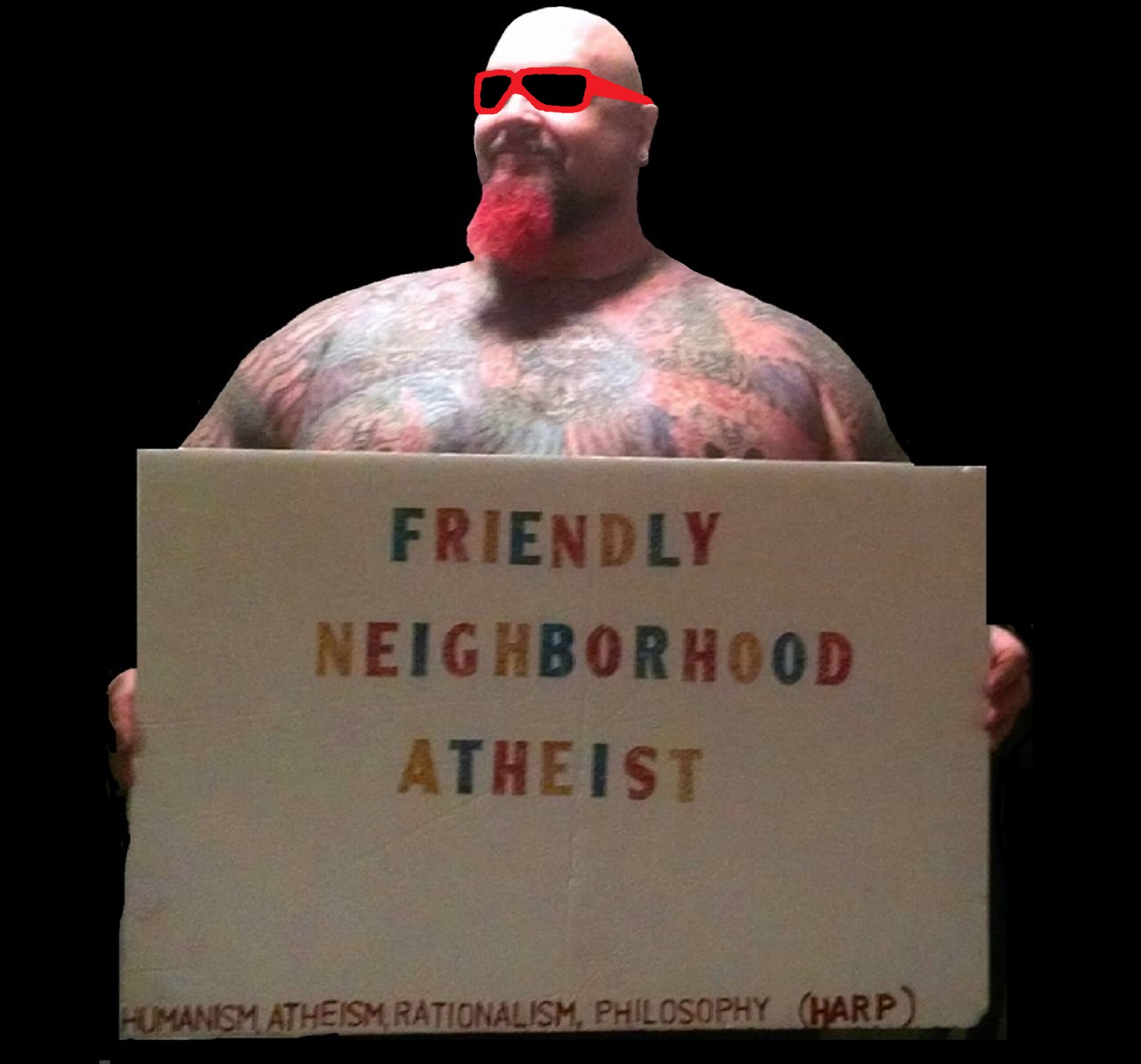
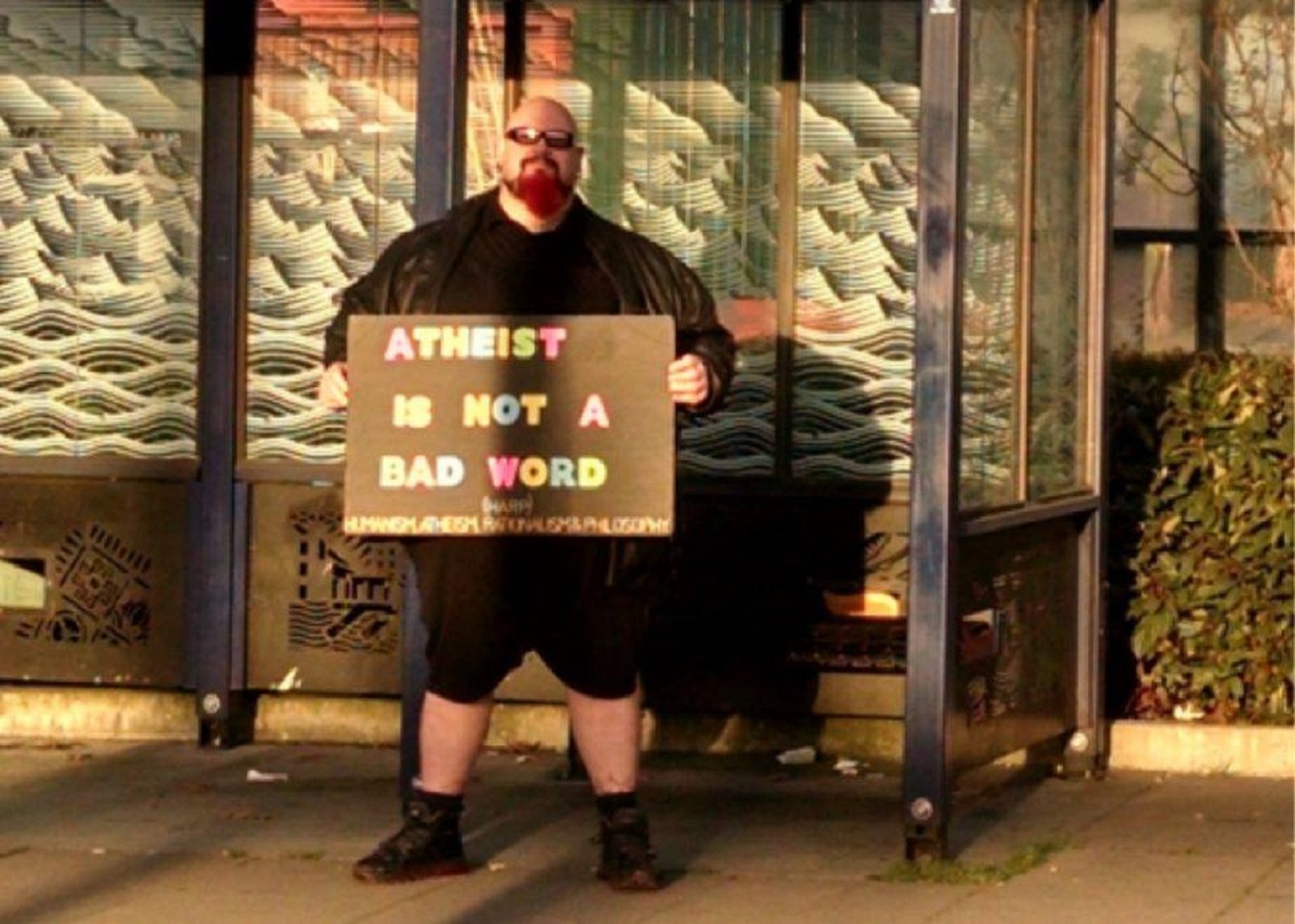
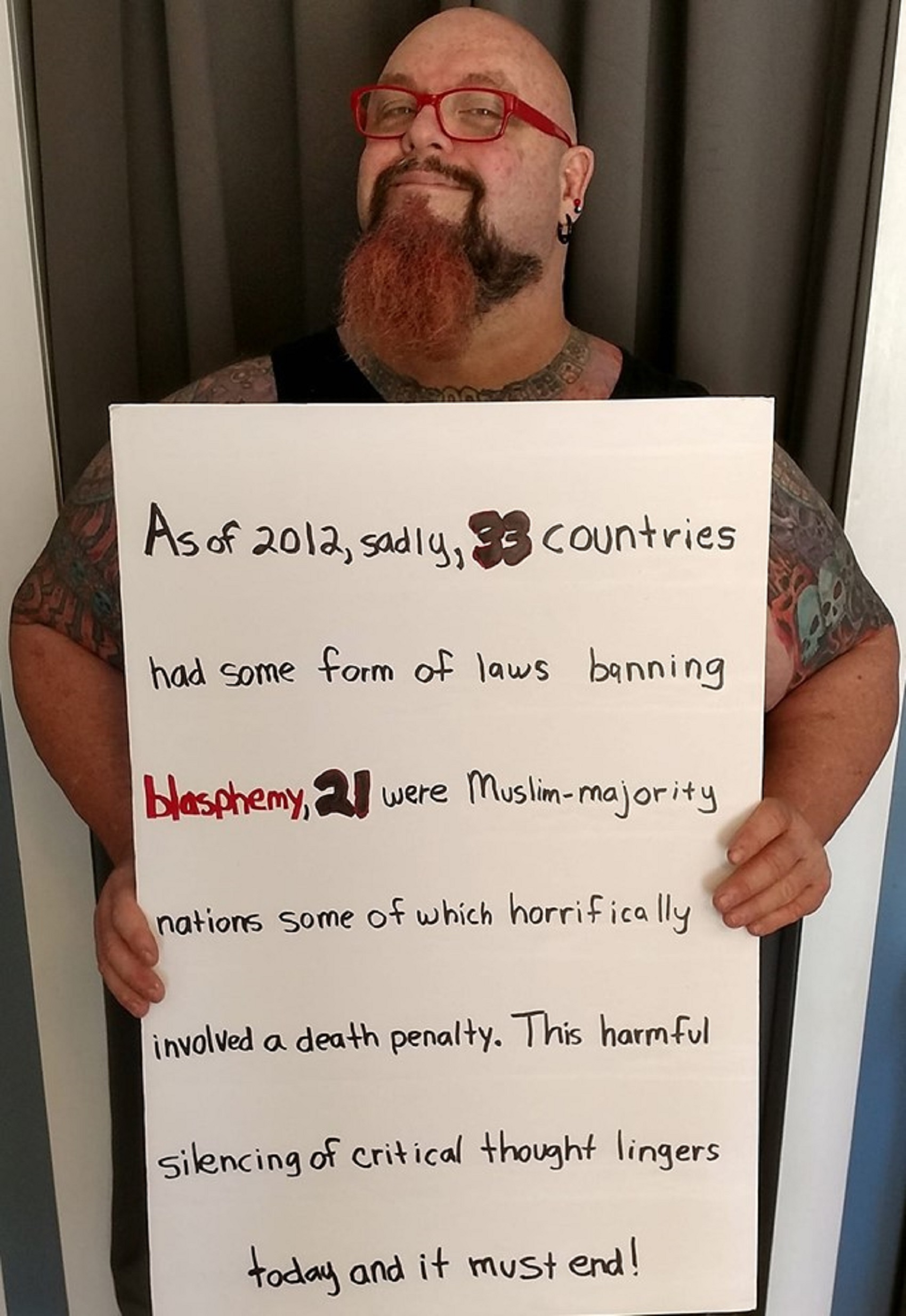
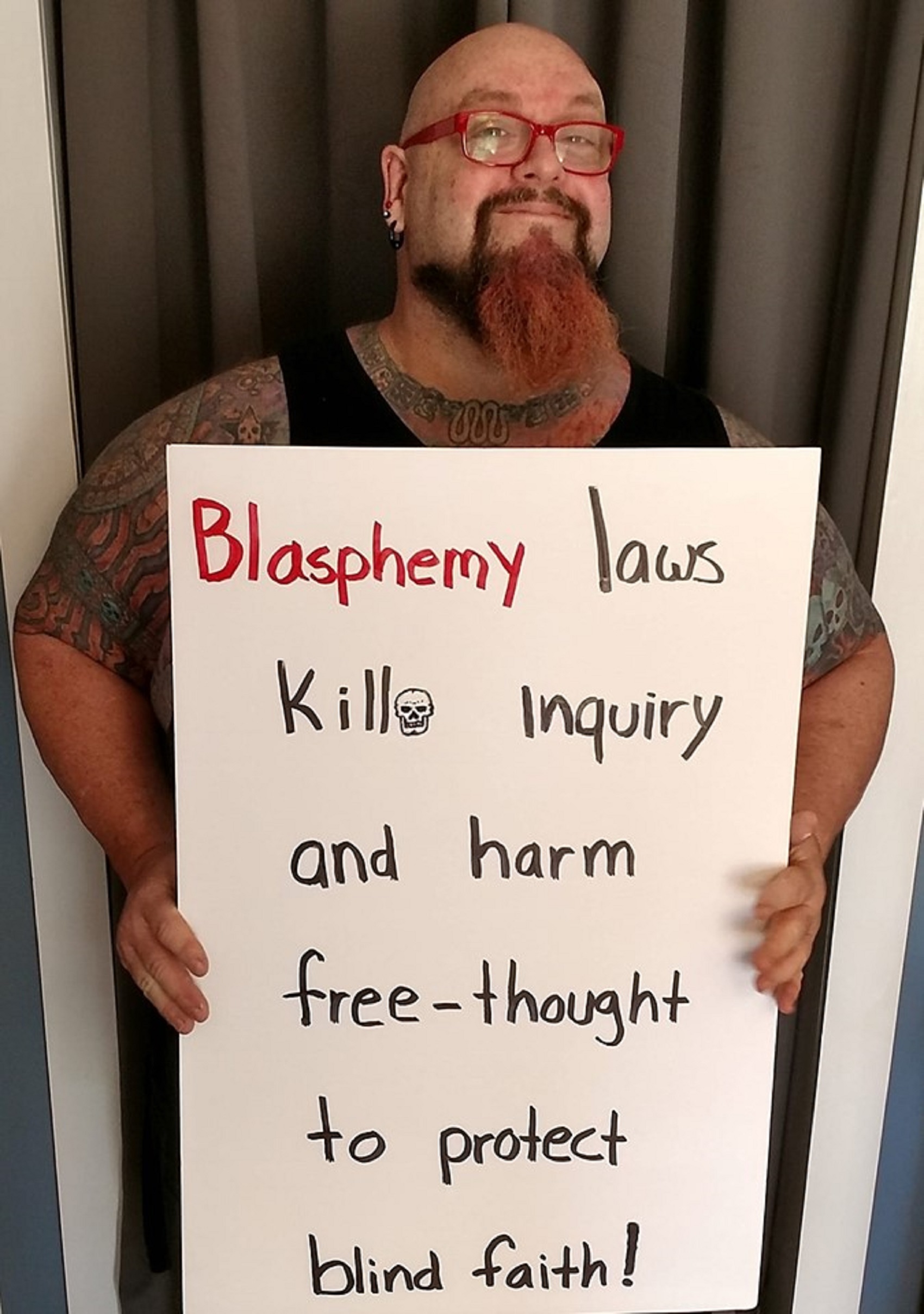
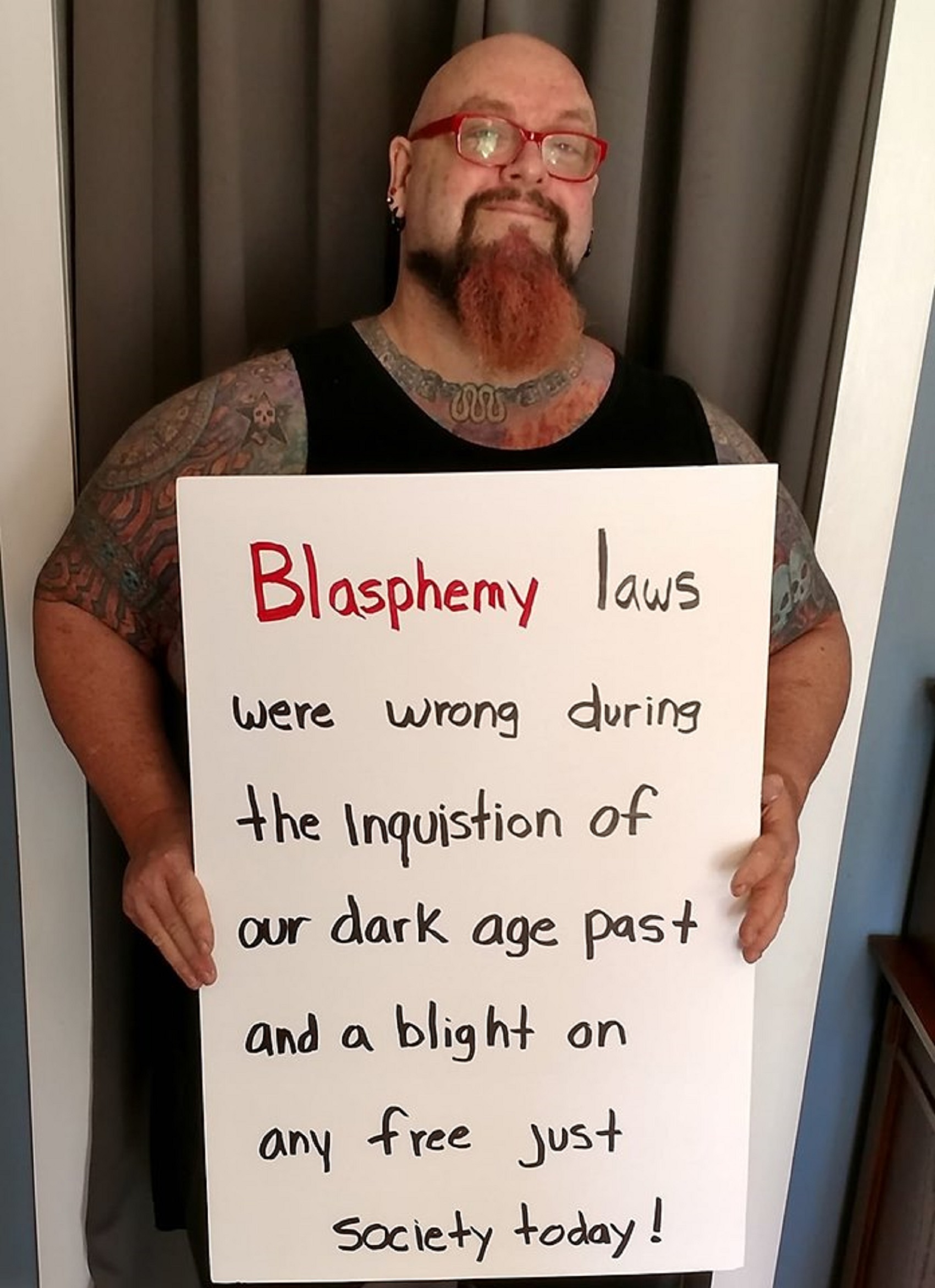
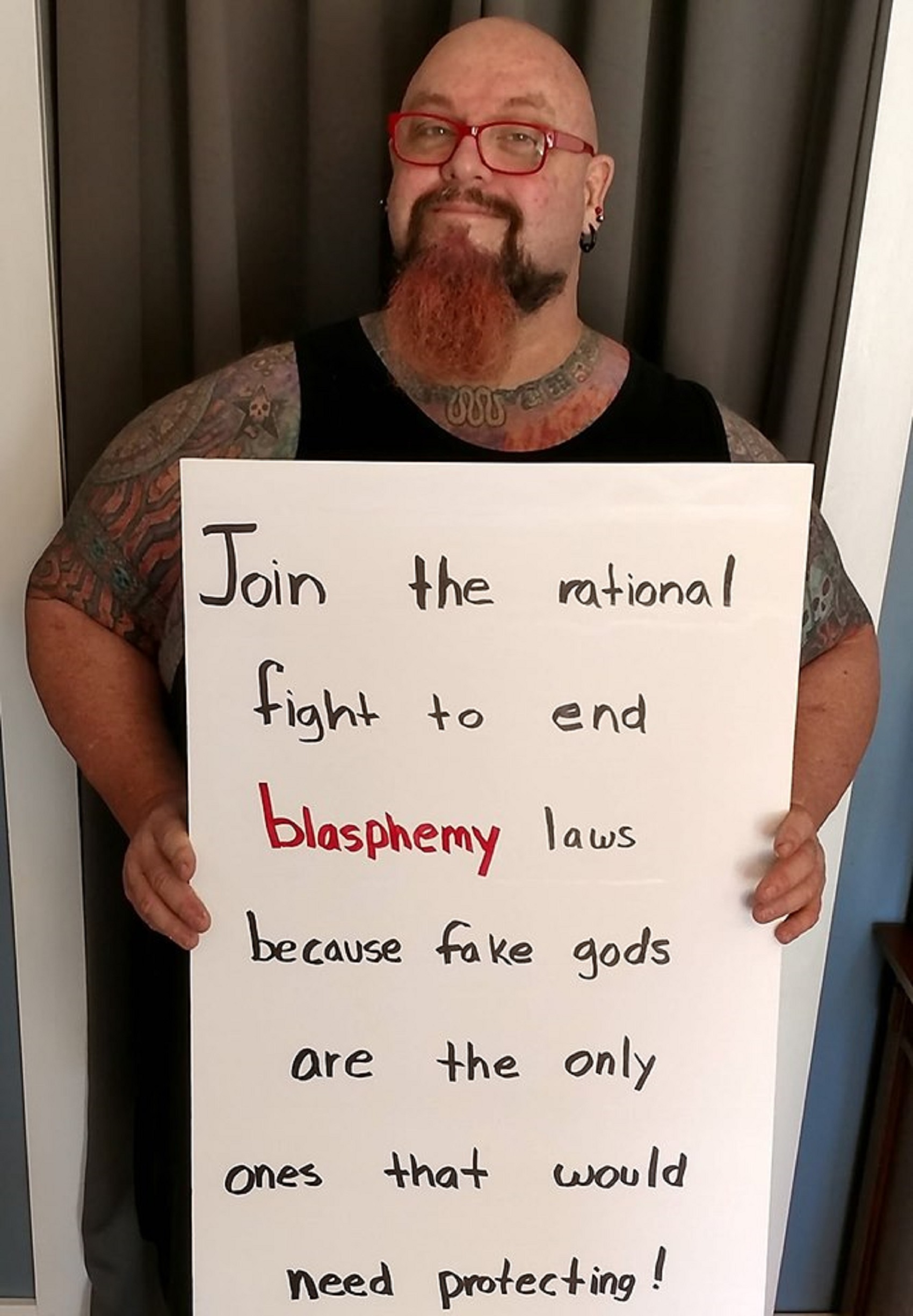

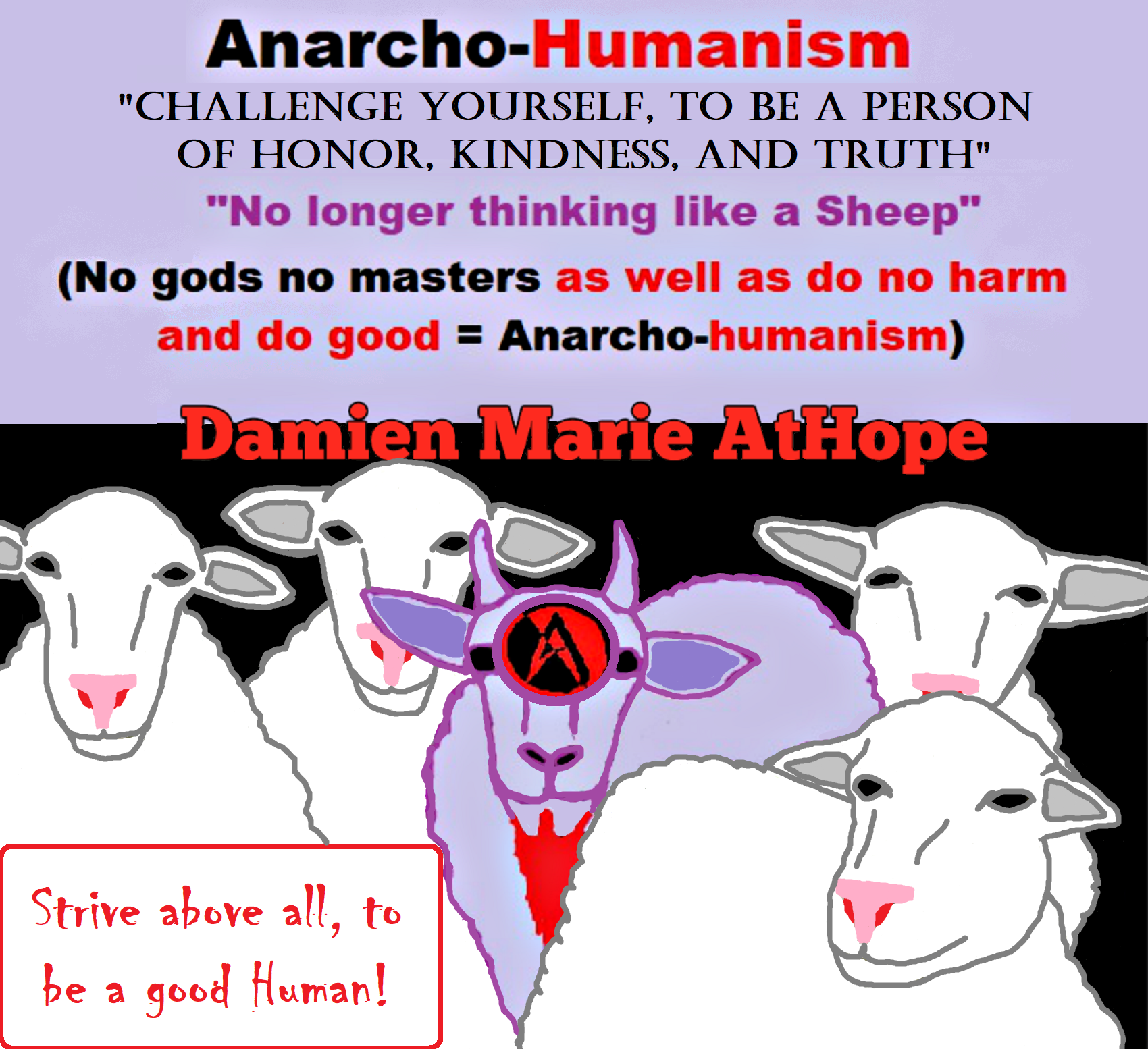

“Theists, there has to be a god, as something can not come from nothing.”
Well, thus something (unknown) happened and then there was something. This does not tell us what the something that may have been involved with something coming from nothing. A supposed first cause, thus something (unknown) happened and then there was something is not an open invitation to claim it as known, neither is it justified to call or label such an unknown as anything, especially an unsubstantiated magical thinking belief born of mythology and religious storytelling.

While hallucinogens are associated with shamanism, it is alcohol that is associated with paganism.
The Atheist-Humanist-Leftist Revolutionaries Shows in the prehistory series:
Show two: Pre-animism 300,000 years old and animism 100,000 years old: related to “Anarchism and Socialism”
Show tree: Totemism 50,000 years old: related to “Anarchism and Socialism”
Show four: Shamanism 30,000 years old: related to “Anarchism and Socialism”
Show five: Paganism 12,000 years old: related to “Anarchism and Socialism”
Show six: Emergence of hierarchy, sexism, slavery, and the new male god dominance: Paganism 7,000-5,000 years old: related to “Anarchism and Socialism” (Capitalism) (World War 0) Elite and their slaves!
Prehistory: related to “Anarchism and Socialism” the division of labor, power, rights, and recourses: VIDEO
Pre-animism 300,000 years old and animism 100,000 years old: related to “Anarchism and Socialism”: VIDEO
Totemism 50,000 years old: related to “Anarchism and Socialism”: VIDEO
Shamanism 30,000 years old: related to “Anarchism and Socialism”: VIDEO
Paganism 12,000 years old: related to “Anarchism and Socialism” (Pre-Capitalism): VIDEO
Paganism 7,000-5,000 years old: related to “Anarchism and Socialism” (Capitalism) (World War 0) Elite and their slaves: VIEDO
Paganism 5,000 years old: progressed organized religion and the state: related to “Anarchism and Socialism” (Kings and the Rise of the State): VIEDO
Paganism 4,000 years old: related to “Anarchism and Socialism” (First Moralistic gods, then the Origin time of Monotheism): VIEDO
I do not hate simply because I challenge and expose myths or lies any more than others being thought of as loving simply because of the protection and hiding from challenge their favored myths or lies.
The truth is best championed in the sunlight of challenge.
An archaeologist once said to me “Damien religion and culture are very different”
My response, So are you saying that was always that way, such as would you say Native Americans’ cultures are separate from their religions? And do you think it always was the way you believe?
I had said that religion was a cultural product. That is still how I see it and there are other archaeologists that think close to me as well. Gods too are the myths of cultures that did not understand science or the world around them, seeing magic/supernatural everywhere.
I personally think there is a goddess and not enough evidence to support a male god at Çatalhöyük but if there was both a male and female god and goddess then I know the kind of gods they were like Proto-Indo-European mythology.
This series idea was addressed in, Anarchist Teaching as Free Public Education or Free Education in the Public: VIDEO
Our 12 video series: Organized Oppression: Mesopotamian State Force and the Politics of power (9,000-4,000 years ago), is adapted from: The Complete and Concise History of the Sumerians and Early Bronze Age Mesopotamia (7000-2000 BC): https://www.youtube.com/watch?v=szFjxmY7jQA by “History with Cy“
Show #1: Mesopotamian State Force and the Politics of Power (Samarra, Halaf, Ubaid)
Show #2: Mesopotamian State Force and the Politics of Power
Show #3: Mesopotamian State Force and the Politics of Power (Uruk and the First Cities)
Show #4: Mesopotamian State Force and the Politics of Power (First Kings)
Show #5: Mesopotamian State Force and the Politics of Power (Early Dynastic Period)
Show #6: Mesopotamian State Force and the Politics of Power
Show #7: Mesopotamian State Force and the Politics of Power (Sargon and Akkadian Rule)
Show #9: Mesopotamian State Force and the Politics of Power (Gudea of Lagash and Utu-hegal)
Show #12: Mesopotamian State Force and the Politics of Power (Aftermath and Legacy of Sumer)

The “Atheist-Humanist-Leftist Revolutionaries”
Cory Johnston ☭ Ⓐ Atheist Leftist @Skepticallefty & I (Damien Marie AtHope) @AthopeMarie (my YouTube & related blog) are working jointly in atheist, antitheist, antireligionist, antifascist, anarchist, socialist, and humanist endeavors in our videos together, generally, every other Saturday.
Why Does Power Bring Responsibility?
Think, how often is it the powerless that start wars, oppress others, or commit genocide? So, I guess the question is to us all, to ask, how can power not carry responsibility in a humanity concept? I know I see the deep ethical responsibility that if there is power their must be a humanistic responsibility of ethical and empathic stewardship of that power. Will I be brave enough to be kind? Will I possess enough courage to be compassionate? Will my valor reach its height of empathy? I as everyone, earns our justified respect by our actions, that are good, ethical, just, protecting, and kind. Do I have enough self-respect to put my love for humanity’s flushing, over being brought down by some of its bad actors? May we all be the ones doing good actions in the world, to help human flourishing.
I create the world I want to live in, striving for flourishing. Which is not a place but a positive potential involvement and promotion; a life of humanist goal precision. To master oneself, also means mastering positive prosocial behaviors needed for human flourishing. I may have lost a god myth as an atheist, but I am happy to tell you, my friend, it is exactly because of that, leaving the mental terrorizer, god belief, that I truly regained my connected ethical as well as kind humanity.
Cory and I will talk about prehistory and theism, addressing the relevance to atheism, anarchism, and socialism.
At the same time as the rise of the male god, 7,000 years ago, there was also the very time there was the rise of violence, war, and clans to kingdoms, then empires, then states. It is all connected back to 7,000 years ago, and it moved across the world.
Cory Johnston: https://damienmarieathope.com/2021/04/cory-johnston-mind-of-a-skeptical-leftist/?v=32aec8db952d
The Mind of a Skeptical Leftist (YouTube)
Cory Johnston: Mind of a Skeptical Leftist @Skepticallefty
The Mind of a Skeptical Leftist By Cory Johnston: “Promoting critical thinking, social justice, and left-wing politics by covering current events and talking to a variety of people. Cory Johnston has been thoughtfully talking to people and attempting to promote critical thinking, social justice, and left-wing politics.” http://anchor.fm/skepticalleft
Cory needs our support. We rise by helping each other.
Cory Johnston ☭ Ⓐ @Skepticallefty Evidence-based atheist leftist (he/him) Producer, host, and co-host of 4 podcasts @skeptarchy @skpoliticspod and @AthopeMarie
Damien Marie AtHope (“At Hope”) Axiological Atheist, Anti-theist, Anti-religionist, Secular Humanist. Rationalist, Writer, Artist, Poet, Philosopher, Advocate, Activist, Psychology, and Armchair Archaeology/Anthropology/Historian.
Damien is interested in: Freedom, Liberty, Justice, Equality, Ethics, Humanism, Science, Atheism, Antiteism, Antireligionism, Ignosticism, Left-Libertarianism, Anarchism, Socialism, Mutualism, Axiology, Metaphysics, LGBTQI, Philosophy, Advocacy, Activism, Mental Health, Psychology, Archaeology, Social Work, Sexual Rights, Marriage Rights, Woman’s Rights, Gender Rights, Child Rights, Secular Rights, Race Equality, Ageism/Disability Equality, Etc. And a far-leftist, “Anarcho-Humanist.”
I am not a good fit in the atheist movement that is mostly pro-capitalist, I am anti-capitalist. Mostly pro-skeptic, I am a rationalist not valuing skepticism. Mostly pro-agnostic, I am anti-agnostic. Mostly limited to anti-Abrahamic religions, I am an anti-religionist.
To me, the “male god” seems to have either emerged or become prominent around 7,000 years ago, whereas the now favored monotheism “male god” is more like 4,000 years ago or so. To me, the “female goddess” seems to have either emerged or become prominent around 11,000-10,000 years ago or so, losing the majority of its once prominence around 2,000 years ago due largely to the now favored monotheism “male god” that grow in prominence after 4,000 years ago or so.
My Thought on the Evolution of Gods?
Animal protector deities from old totems/spirit animal beliefs come first to me, 13,000/12,000 years ago, then women as deities 11,000/10,000 years ago, then male gods around 7,000/8,000 years ago. Moralistic gods around 5,000/4,000 years ago, and monotheistic gods around 4,000/3,000 years ago.
To me, animal gods were likely first related to totemism animals around 13,000 to 12,000 years ago or older. Female as goddesses was next to me, 11,000 to 10,000 years ago or so with the emergence of agriculture. Then male gods come about 8,000 to 7,000 years ago with clan wars. Many monotheism-themed religions started in henotheism, emerging out of polytheism/paganism.

Damien Marie AtHope (Said as “At” “Hope”)/(Autodidact Polymath but not good at math):
Axiological Atheist, Anti-theist, Anti-religionist, Secular Humanist, Rationalist, Writer, Artist, Jeweler, Poet, “autodidact” Philosopher, schooled in Psychology, and “autodidact” Armchair Archaeology/Anthropology/Pre-Historian (Knowledgeable in the range of: 1 million to 5,000/4,000 years ago). I am an anarchist socialist politically. Reasons for or Types of Atheism
My Website, My Blog, & Short-writing or Quotes, My YouTube, Twitter: @AthopeMarie, and My Email: damien.marie.athope@gmail.com


